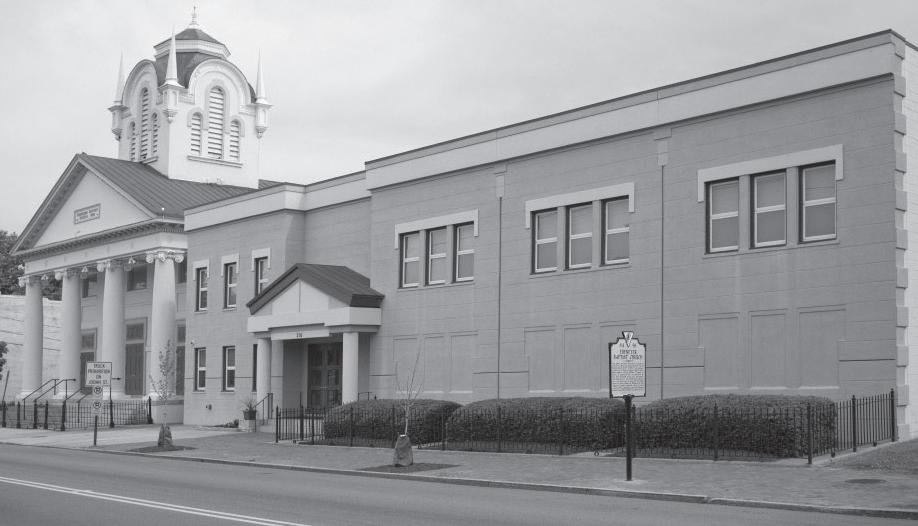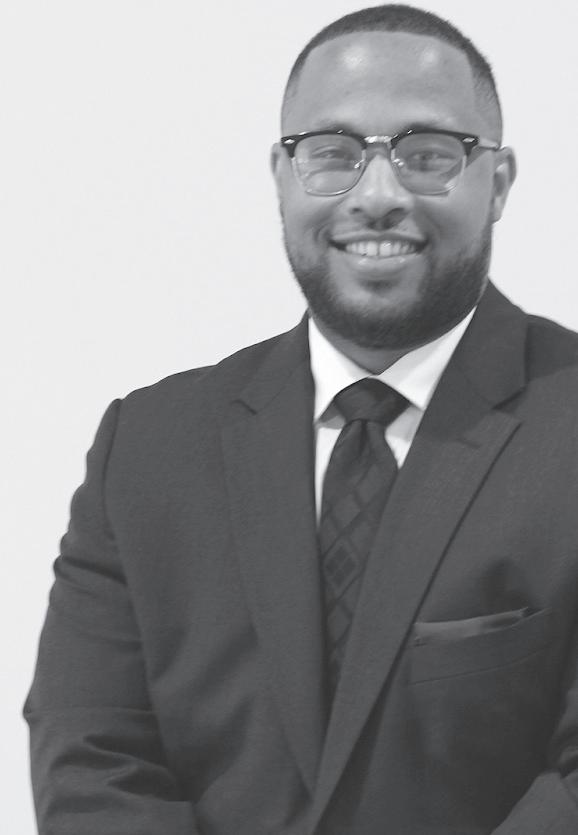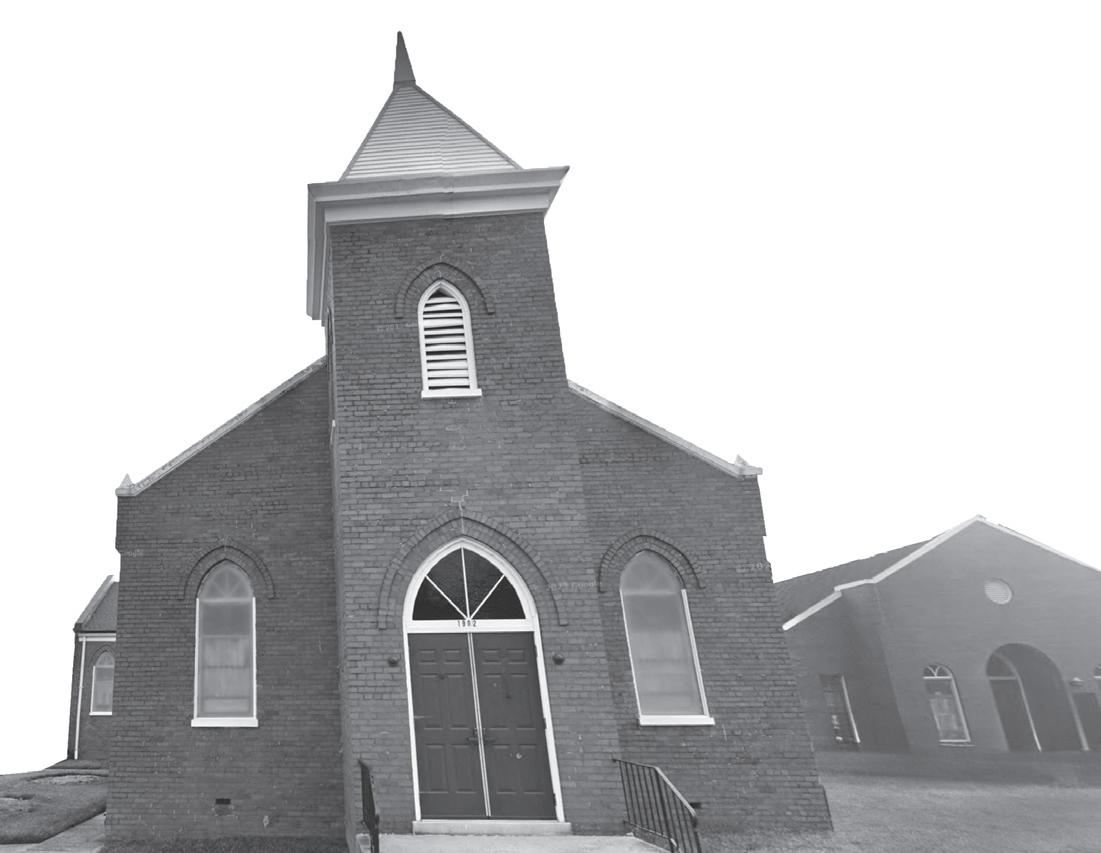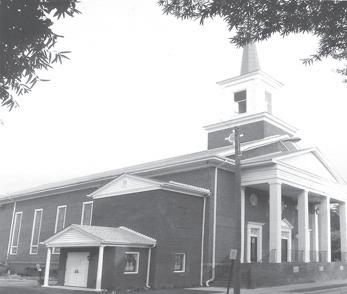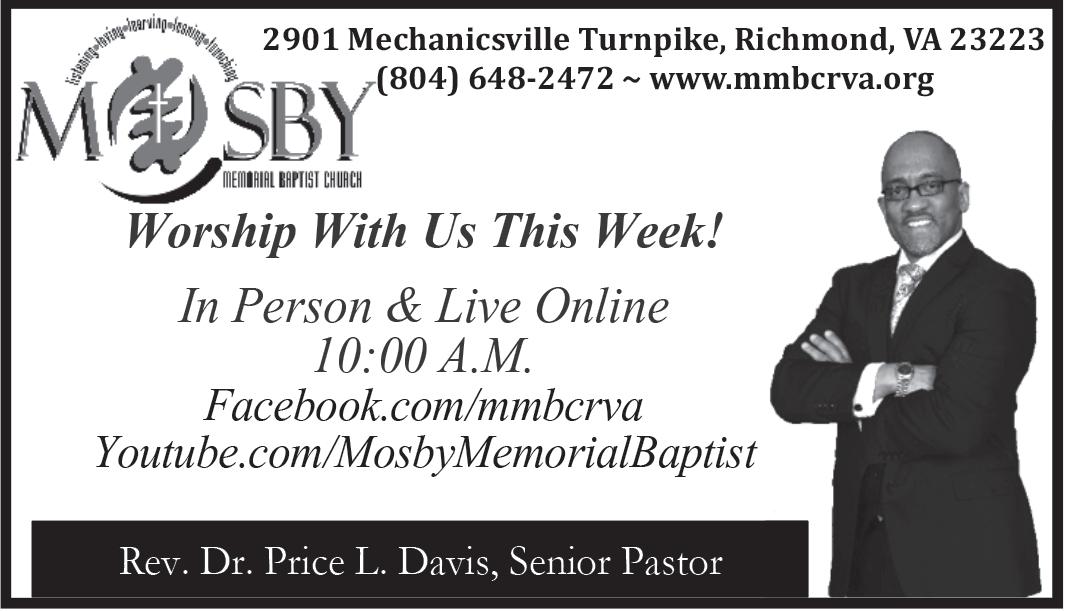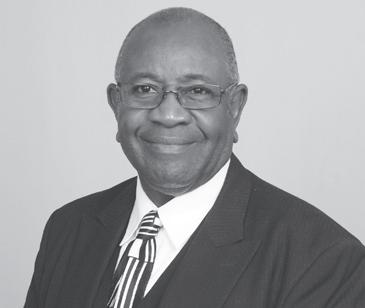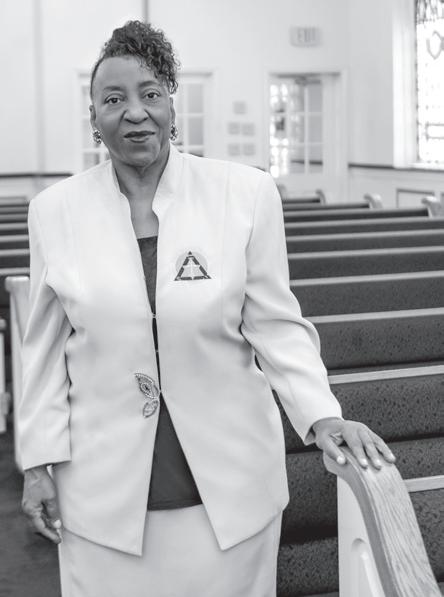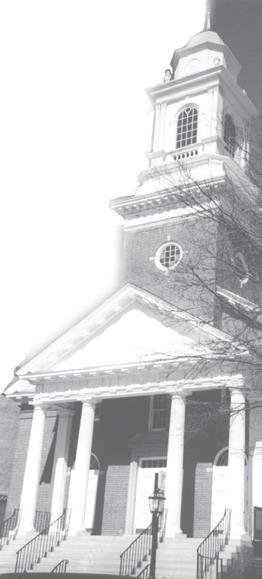





By George Copeland Jr.
A stash of moldy boxes uncovered during a home renovation in Jackson Ward sparked a years-long effort to preserve the legacy of Roland J. “Duke” Ealey, a civil rights attorney and former Virginia state delegate whose work spanned pivotal moments in school desegregation, voting rights and criminal justice.
Now, The Ealey Project — founded after the discovery of hundreds of thousands of his legal files in those boxes — is turning to the public for help. The group is gathering oral histories, seeking partnerships and raising funds to ensure Ealey’s contributions, and those of everyday Virginians, are fully documented.
“You’re going to find an overwhelming amount of information that we can use to enhance our American historical narrative,” James Vigeant, the project’s president, told members of the Afro-American Historical Genealogical Society’s Greater Richmond Virginia Chapter during a Saturday meeting at the Richmond Public Library.
Vigeant, alongside wife and Ealey Project member Sasha Finch stumbled on the files from Ealey’s law office in 2018 during the renovation of an over 100-yearold house on East Clay Street.
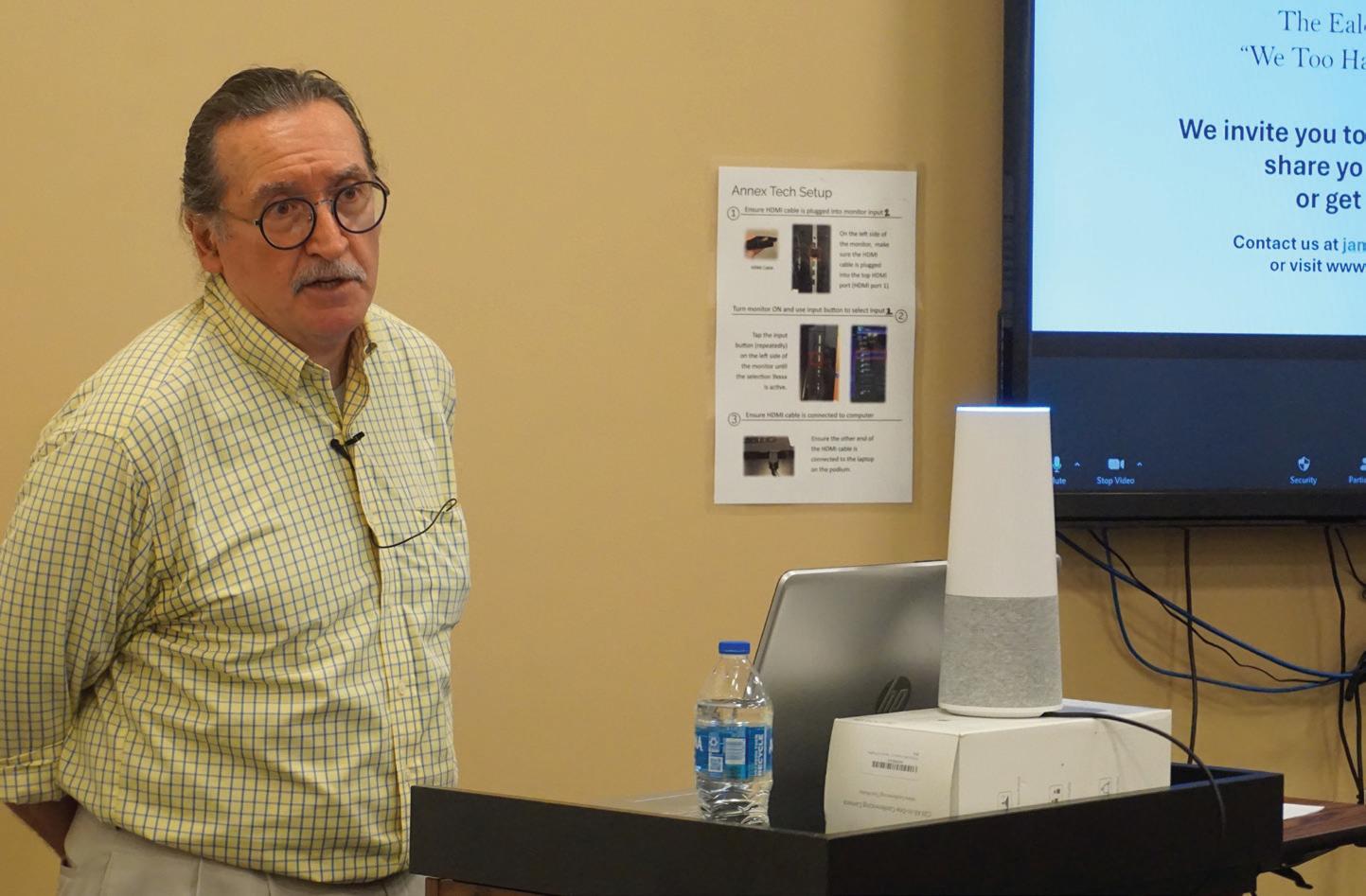
As they investigated the material spanning from 1940 to 1992, they connected with groups and people interested in safeguarding their findings, including former Gov. L. Douglas Wilder. The files are currently archived at the
Library of Virginia, and The Ealey Project is partnering with local institutions, universities and community groups to amplify Ealey’s story and fill gaps in the
Richmond to investigate Confederate burial site under City property
By George Copeland Jr.
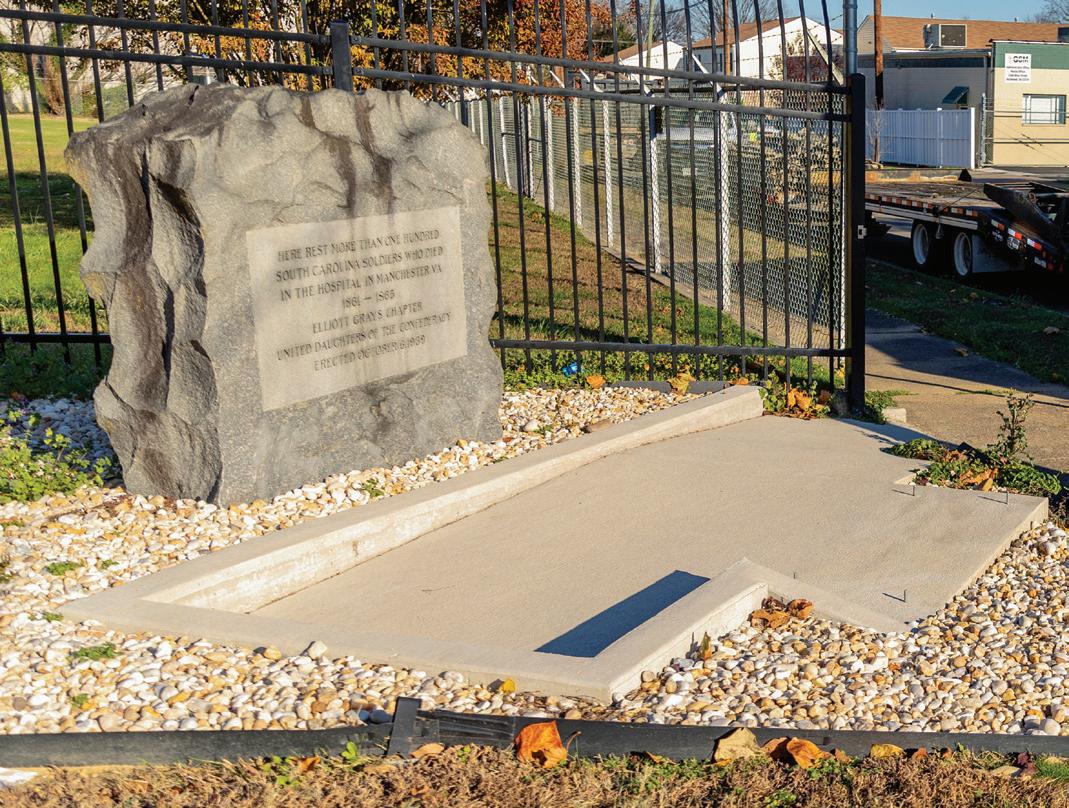
Years after a costly renovation to a Confederate marker on City property sparked controversy, Richmond officials are moving forward with plans to determine whether the remains it honors are still buried there.
Mayor Danny Avula’s administration plans to examine the Department of Public Utilities’ Wise Street substation property, where the marker is located, using a vendor with ground-penetrating radar to search for human remains or burial shafts. Testing is set for this spring, with next steps depending on the findings.
“It is paramount to understand the true nature of this
By Ian Stewart
During fiscal year 2024, almost 11 million riders rode the bus in Richmond, or used paratransit, or LINK Microtransit services, according to the Greater Richmond Transit Company, an increase of 14% over last year. That boost is almost certainly due to GRTC’s zero-fare program that has allowed people to ride for free.
But the program, which started during the pandemic, may be eliminated this summer, if a funding gap isn’t closed.
To spur corporations and the public into action, the nonprofit advocacy group RVA Rapid Transit released a report last week at the University of Richmond’s Queally Center.
Called, “Free to Move: The Role of Zero-Fare Transit in Advancing Health and Justice in Richmond,” the report breaks down the history of zero-fare, the demographics of riders and how the funding gap could damage ridership.
Faith Walker, executive director of RVA Rapid Transit, said her group spoke to 100 bus riders about how zero-fare transit plays a critical role in their lives. Their report shows a funding need of $6.8 million for next year.
“The report clearly outlines the impact of fare-free public transit, connecting individuals to jobs, health care, education, and essential services,” she said, “while contributing to reduced carbon emissions and more sustainable urban development. The need for accessible transit is urgent and we must act now to sustain and expand this vital service.”
The need Walker spoke of is a daily reality for Aqiyla McMil-
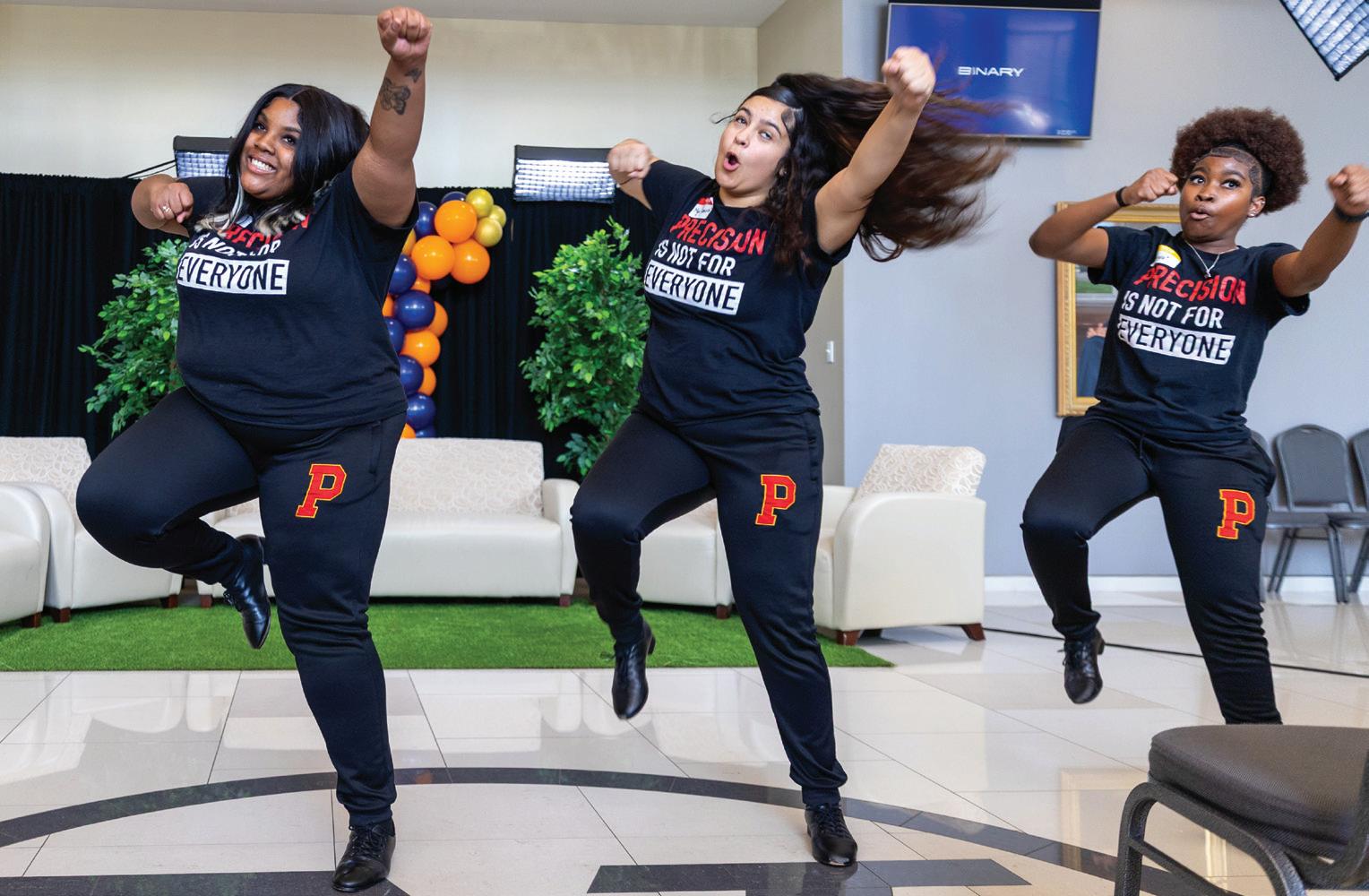
The Virginia Museum of Fine Arts recently appointed Karen Daly as the museum’s first senior manager of provenance research. Daly assumed the role on March 10. She will oversee research on the museum’s 50,000-piece collection, focusing on tracing the ownership history of objects, especially those that may have been looted or stolen.

Provenance research is a vital part of ensuring all objects in a museum’s collection are lawfully acquired. The museum’s efforts are aimed at addressing works of art created before 1946, which may have been stolen during World War II. Since 2004, the museum has resolved several Nazi-era art claims, returning three works to their rightful owners.
In addition, VMFA has repatriated 44 ancient artworks to Italy, Egypt and Turkey, in accordance with international guidelines. In 2023, the museum returned five items to tribal communities in compliance with the Native American Graves Protection and Repatriation Act.
Daly’s role also will include working with VMFA’s staff to develop research protocols, address restitution claims and increase public access to provenance information via the museum’s website.
After the collapse of a previous development deal, Henrico is once again looking for proposals to transform the former Best Products headquarters into a mixed-use development anchored by an arena. The county plans to issue a formal “request for interest” in later this monthl, inviting developers to submit ideas for the project, which will focus on entertainment and tourism.
A committee, made up of representatives from the Henrico Economic Development Authority, Henrico Sports & Entertainment Authority, and other county officials, will review submissions for 45 days before forwarding a recommendation to the Board of Supervisors.
The move comes after the original GreenCity project—intended to be a $2.3 billion, mixed-use development with an arena—fell through when the development team was unable to complete its purchase of the 93-acre property. Henrico plans to repurchase the land by April 15.
“Henrico County is eager to attract a new partner or partners that are proven, competent and capitalized to deliver on what’s clearly a once-in-a-lifetime development opportunity,” County Manager John A. Vithoulkas said. “This location—along two major interstates—is perfectly suited for a large arena, and our region is starving for a venue to host major concerts, sporting events and other family entertainment.”
Vithoulkas emphasized the county already has begun preparing the site, including extending Magellan Parkway across I-95, expanding water and sewer infrastructure and working on the Fall Line Trail.
Henrico will require submissions to include a firm development timeline, financing for the first phase and the inclusion of full-service hotels and a privately financed arena through a community development authority.
Free community testing for COVID-19 continues
For the week ending Saturday, March 29, COVID-19 accounted for .9% of all emergency department visits in Virginia, with overall respiratory illness rates low and trending down compared to previous data. No COVID-19-related deaths were reported during this period at press time.
As of the latest sampling on March 2, COVID-19 wastewater data was unavailable for Richmond, while levels in Henrico County remained steady. However, CDC monitoring from March 16 through 22 detected high viral activity across Virginia, with reports from six sites statewide. The highest concentrations were found in northwestern and southwestern regions, as well as in Petersburg. RHHD’s Resource Centers are providing free at-home tests for pickup at select locations:
• Creighton Court at 2150 Creighton Road, call 804-3710433.
• Fairfield Court at 2311 N. 25th St., call 804-786-4099.
• Gilpin Court at 436 Calhoun St., call 804-786-1960.
• Hillside Court at 1615 Glenfield Ave., call 804-230-7740.
• Mosby Court at 1536 Coalter St., call 804-786-0204.
• Southwood Court at 1754 Clarkson Road, Unit B, call 804-230-2077.
• Whitcomb Court at 2106 Deforrest St., call 804-786-0555. For Virginia Department of Health testing locations, visit vdh. virginia.gov. Additional testing site information can be found at vax.rchd.com. Want a COVID-19 vaccine?
The CDC recommends the COVID-19 vaccine for everyone 6 months and older. Pfizer-BioNTech and Moderna vaccines are approved for those 6 months and older, while Novavax is for individuals age 12 and older. To schedule an appointment with the Richmond and Henrico health districts, call 804-2053501. A list of pharmacies and clinics offering the vaccine is available at Vaccines.gov. Additional locations can be found by texting your ZIP code to 438829 or calling 1-800-232-0233. Compiled by George Copeland Jr.
Corrections
In last week’s story about the 5th Annual MLK Memorial Luncheon and Awards Program, the event time was listed incorrectly due to information provided to the Free Press. The luncheon will take place at noon Saturday, April 5, at Fifth Baptist Church, located at 1415 W. Cary St. Tickets cost $35. Additionally, on the Sports page, an article about a high school basketball all-star game contained an incorrect score. The South girls’ team won 120–101, and the boys’ final score was 99–94. The Free Press regrets the errors.

Slices of life and scenes in Richmond
Seventh-grade MLK art students Sariah W. and Brianna T. join city leaders, educators, and community volunteers in painting a street mural along the 1000 block of Mosby Street on Fri-
day, March 29. The project is part of the Lighter, Quicker, Cheaper (LQC) initiative, led by the Richmond Department of Public Works and the Office of Equitable Transit and Mobility. LQC projects — informed by community feedback — focus on improving traffic safety, advancing transportation equity and creating more accessible streets through quick, low-cost solutions while securing funding for permanent upgrades.
By George Copeland Jr.
Housing and school funding, raises and spending reductions are major elements of Mayor Danny Avula’s first budget.
The $3 billion proposal for the 2026 fiscal year, which Avula presented to Richmond City Council last week, includes investments of nearly $50 million in housing initiatives and almost a quarter of general funds to support Richmond Public Schools.
More than $50 million will fund sustainability projects, including safe, complete streets, the Fall Line Trail and the Neighborhood Climate Resilience Grant program. No property taxes will be raised as part of the proposal.
“It reflects our shared vision of an effective city government that carefully and thoughtfully stewards resources,” Avula said of the proposal, “investing in core services and essential community needs.”
Investment in City workers and services is also a key part of the proposal, which includes two new roles: a transportation director and chief transformation officer.
Salary increases are planned for eligible City employees by at least 3.25%, along with a 10.3% pay raise for police officers
and firefighters and an almost $45,000 raise for Avula himself.
The proposal was shaped by the funding restrictions Richmond faces, according to Avula, including the many tax-exempt properties in the city, rising costs, and federal cuts and changes. Despite these obstacles, and grim economic expectations for 2026 and 2027, Avula was committed to investment and improvement.
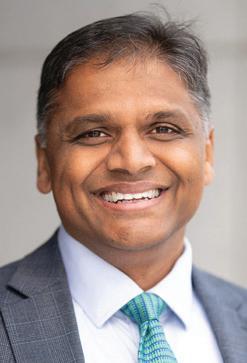
“But even in the face of those challenges, our responsibility remains the same,” Avula said. “To see our way to an effective and efficient City Hall and a healthy and thriving city.”
Avula’s proposal also came with some allocations and reductions that already have sparked concern. The $9.6 million increase to the RPS general fund is larger than the previous year, but short of the $30 million school leaders requested as part of their budget proposal.
In a joint statement, the School Board and Superintendent Jason Kamras said they
looked forward to collaborating with the City on the matter, but warned that the choice “jeopardizes the progress we’ve made and our children’s future.”
“We understand that the City is facing a tough budget year, and we sincerely appreciate the addition of $10 million, in a time when many departments and partners face cuts,” they wrote. “However, right now, it falls short of what our children need — and deserve.”
The budget also proposes a $4.1 million cut in grants for local nonprofits and charities, due to what Avula described as an unsustainable level of funding given the “fiscal climate.” The budget document also cites “concerns about the effectiveness and oversight” over the grant process after a recent audit.
Avula also acknowledged the absence of the Richmond People’s Budget, promising the city would try to find alternative support for some of the expected projects through planned allocations for the Department of Public Works.
City Council will now consider Avula’s proposal through multiple meetings in the weeks to come, with the finalized budget expected to be voted on during their meeting on May 12.

‘Go with the Flow’ project aims to map flooding patterns across Richmond
Southside ReLeaf and the University of Richmond have launched the “Go with the Flow” community science project to collect data on flooding patterns across the city. The project, which runs from March 20 to Sept. 1, encourages Richmond residents to participate in a flood survey each time it rains.
The project is working to gather data that will help build a comprehensive flood map of Richmond, identifying areas that flood and areas where infrastructure failures may be contributing to the problem. The data collected also will support advocacy efforts for green infrastructure improvements in alignment with the city’s RVAgreen 2050 and RVAH2O initiatives.
“There’s currently a significant gap in data about where and how much it floods in the city, but we know that flooding is a serious problem,” said Sheri Shannon, co-founder and director of programs at
Southside ReLeaf. “We hear from our South Side neighbors all the time about how badly it floods in their neighborhoods and how much that disrupts their lives.”
Flooding in Richmond is often caused by excessive runoff from developed areas with non-permeable surfaces that prevent water absorption. These surfaces direct water toward outdated drainage systems that are often overwhelmed. South Side Richmond, particularly areas annexed from Chesterfield, faces significant flooding, a concern identified as a priority by Richmond City Council for 2025. Participants in the project are encouraged to complete the flood survey during or after any rainfall, whether or not flooding is observed.
“Knowing where it floods in the city is just as important as knowing where it doesn’t flood during a rainstorm,” saidStephanie Spera, associate professor of Geography, Environment, and Sustainability at the University of Richmond. “The flood
model we’re creating uses data on where paved roads, storm drains, trees, and other topographical features are located in the city. With the data on where it does and doesn’t flood during a rain event collected through the survey, we’ll be able to create a stronger model that will allow us to look for patterns in how the built environment of an area relates to its flood risk.” As the project collects more survey data, the flood model will improve, allowing for more accurate predictions of flood risks. This information is expected to help direct resources and inform future flood management and infrastructure investments.
“We’re excited to invite the community to participate in this community science project,” said Amy Wentz, co-founder of Southside ReLeaf and director of engagement. “Everyone can contribute something meaningful to this collective effort to address flooding in our communities.” For more information visit southsidereleaf.org/go-with-the-flow.
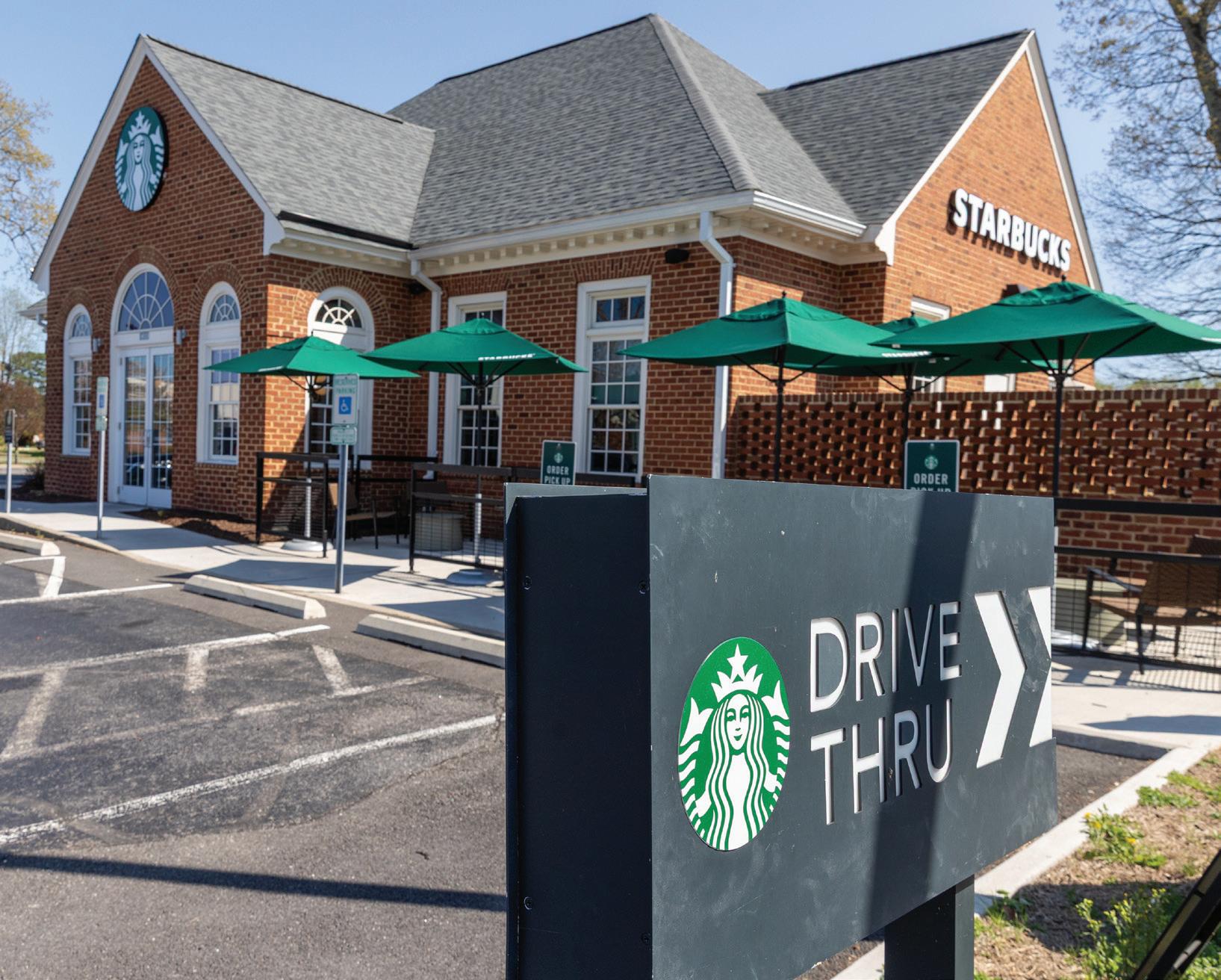
By George Copeland Jr.
A petition filed last week by Starbucks baristas in Mechanicsville has set the stage for a union election with the National Labor Relations Board (NLRB), and could continue the labor efforts seen by other stores across the Richmond area.
If employees at the store, located on Bell Creek Road, vote in favor, they’ll join 11,000 other baristas at over 550 Starbucks locations in 45 states and the District of Columbia in unionizing their store, according to Starbucks Workers United (SWU).
For Haley Porter, a shift supervisor of three years with a love of coffee and the care and craft of her work, union representation is an opportunity to give her and fellow employees “[their] voice back.”
“I have felt helpless and voiceless in my store under Starbucks for too long,” Porter said in a statement. “I want Starbucks to give their baristas the resources we need to deliver care to our customers rather than another year
of ‘record profits’ to pad the CEO’s pockets.”
The petition is the latest labor effort seen in Starbucks stores locally and statewide after multiple locations, including five Richmond stores, became the first in the state to vote to unionize in 2022.
The process has not been without pushback, such as the firing and rehiring of a Richmond shift supervisor in 2022 that SWU and NLRB allege was in retaliation for their support of union efforts. Richmond Starbucks stores also were among the 300 that participated in a nationwide strike on Christmas Eve.
Starbucks spokesperson Phil Gee said in a statement, “At Starbucks, our success starts and ends with our partners. We respect our partners’ right to choose, through a fair and democratic process, to be represented by a union or not to be represented by a union, and will continue to work together to make Starbucks the best job in retail.”
Starbucks and SWU are working with a mediator to resume bargaining and contract discussions.
Free Press staff report
City of Richmond officials announced Tuesday that 226 debt collection letters were mailed to incorrect addresses last month, marking the second time in weeks Richmond has disclosed errors in sensitive mailings.
The debt setoff notices, sent March 28 by the Department of Information Technology, contained recipients’ names, addresses, claim numbers and amounts due. While no financial data was exposed, the error comes just weeks after the City mistakenly mailed approximately 6,200 tax rebate checks with incorrect payee information.
recipient due to what officials described as a manual data processing error.
The twin incidents have raised questions about the City’s handling of sensitive mailings. Information Technology Director Charles Todd said the debt letter mishap prompted immediate retraining for mailroom staff.

In the earlier incident, rebate checks intended for property owners were repeatedly printed with “Hartshorn Community Council” as the






“I take protecting privacy incredibly seriously — whether it be digital privacy or the privacy of mailed documents,” Todd said. “I apologize, and I want Richmonders to know we will review our processes and make the necessary adjustments to prevent this from happening again.”
Residents affected by either incident will receive corrected mailings, officials said. Questions may be directed to RVA311 at 3-1-1 or (804) 646-7000.
















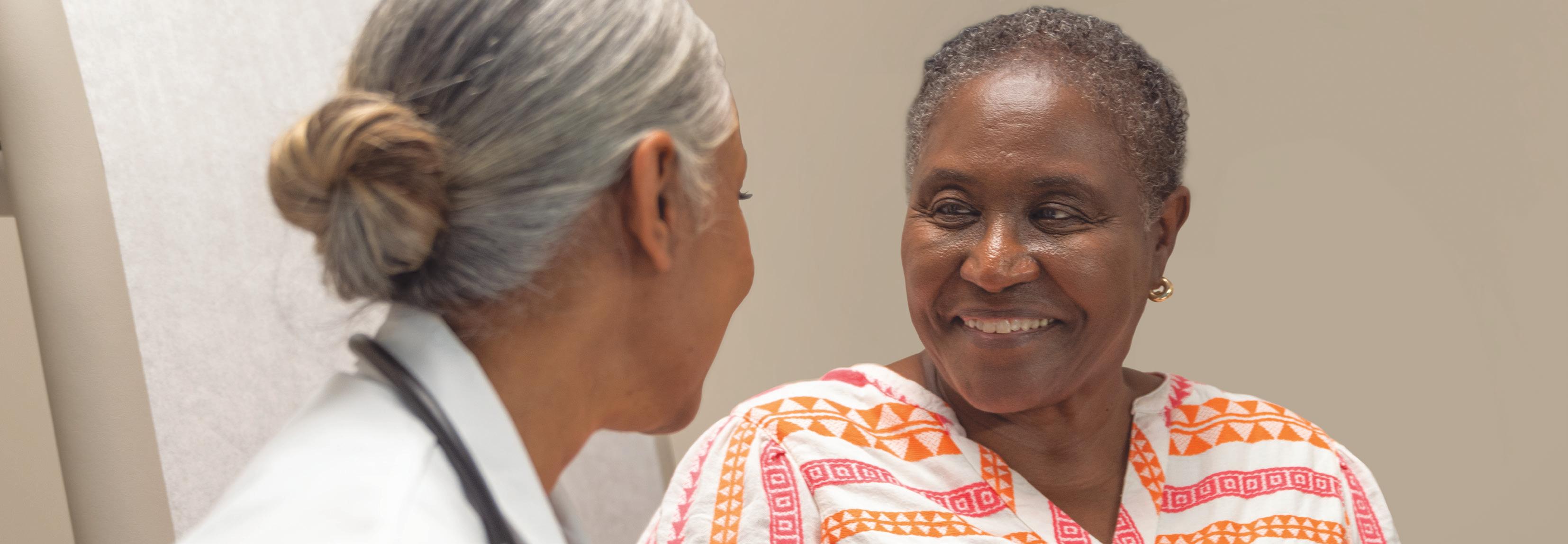

Tywana Hampton, who is involved with “Speak Up! Hanover,” said she has always been pro-life, and came to Richmond to oppose the amendment. However, she also believes that allowing Virginians to vote on the amendment is important, she said.
“I think the people need to have a voice in it. It’s ultimately going to affect the population and everybody,” Hampton said.
Last year, Youngkin vetoed the Right to Contraception Act, which would have guaranteed Virginian’s right to access con-
$6.8M
traceptives. In January, EarleSears was the tie-breaking vote against SB 1105, which also intended to protect contraceptive access for women.
Amie Carter, a minister who came to the protest with the Family Foundation, said she doesn’t think contraception access goes against the views of the pro-life movement.
“When I think about prolife, I think about a child that’s already been conceived, already in the womb. In terms of family planning, that’s a little bit separate to me than abortion,” Carter said.
Although she opposes guar-
Continued from A1
lan, who has been riding the bus for more than a year, after her car broke down and an injury also sidelined her from driving.
“I had a surgery, so I had to start getting around, getting to doctor’s appointments, getting to physical therapy, getting the kids to school,” said McMillan. “So I got on the bus one day thinking I had to pay and they were like, ‘Oh, no, the bus is free.’” McMillan said not having to pay for the bus on a regular basis has been a lifesaver.
“I would have never been able to do that if there was fare on the bus,” she said.
The transit service gets funding from a variety of sources, including state and federal grants. Separate funding injections come from nearby localities and from the Central Virginia Transit Authority. But these funding sources help cover GRTC’s entire budget, not just the zero-fare program, according to spokesperson Ashley Potter.
A state grant of $8 million from the Virginia Department of Rail & Public Transportation (DRPT) called the Transit Ridership Incentive Program (TRIP) launched GRTC’s zero-fare ridership at the end of 2021. The purpose was to study and implement zero-fare service for a limited time, according to GRTC. Over a three-year period, the funding would dwindle to zero.
The net cost for the zero-fare program for that time period was $20.4 million, according to Mass Transit, a trade publication. That’s after removing $1.2 million for fare collection costs.
With the $8 million TRIP grant in place, other funding sources had to come forward to make the $20 million mark. So Virginia Commonwealth University stepped up to contribute $3.8 million, and GRTC ponied up $8.56 million in funds.
Knowing the DRPT grant was set to expire, GRTC launched a Transit Access Partnership program in 2023 to seek out other corporate sponsors and individuals to help sustain zero-fare ridership.
“Our focus for zero-fare and our TAP program has been at the forefront of what we’ve been doing over the last couple of months,” said Sheryl Adams, GRTC’s chief executive officer. “So, with the TAP program anyone can contribute. If you’re an organization, you can do a tax write-off through our 501C, which is Ride Finders.”
Adrienne Torres, the bus company’s chief of staff, said to help keep the program afloat, GRTC also has been seeking a variety of new sources.
“We have kind of gone after several paths to keep it sustained for the next year,” Torres said. “We’ve applied for a congestion mitigation air quality grant and that’s $2 million.”
New revenue from an expanded advertising program will also help with zero-fare funding, said Torres, who hopes to get up to $2 million from it.
“We worked with the City and they did a franchise agreement, which now allows us to do advertising basically in any right of way, so not just at the Pulse stations, but at bus stops, shelters, poles, benches. We’ve also expanded the ability to advertise on our vehicles,” she said.
Torres said they’ve also been looking through their budget to see where else they can help with funds for the program.
“We feel like we’re pretty close. Like I said, we have zerofare in there for this year, but we still need to continue to have support for it,” she said. “Our grant applications are still pending. So hopefully we’ll know for sure in the next month or two where we are. Our budget’s going to go to the board in May. We have a strategy and a plan that hopefully will come to fruition for FY2026.”
Walker hopes her group’s new report on zero fares encourages everyone, from the members of the public to those with legislative power, to do all they can to help keep the service running.
“I am calling on elected officials, employers, transit riders, environmentalists and everyday Richmonders to support the future of zero-fare transit through the GRTC Transit Access Partnership Program and their advertisement program,” said Walker. “It’s time to champion tap funding and ensure continued support for zero fare transit services.”
This article originally appeared on VirginiaMercury.com

anteed access to abortion, she recognizes that there are some instances where it is appropriate, she said.
“I will say, you know, in extreme cases of incest, rape or if the woman’s health is at risk … I feel like that’s the exception, not the rule,” Carter said.
Promotional materials from the Family Foundation opposing the march argued HJ 1’s provisions for abortion access could undermine parental rights, though supporters of the measure dispute this interpretation.
“For instance, a 13-year-old girl, the way that the amendment is written, doesn’t require any sort of parental consent. So a teenager or someone who was
even younger than 18, could go in and get an abortion without any adults,” Carter said.
Linda Abandeh, who considers herself pro-life, attended the protest to advocate for Palestinian lives. While using a megaphone in the park, she said another attendee who appeared to be a priest tried to take it from her, breaking it in the process, she said.
Abandeh said she didn’t feel the crowd of marchers was receptive to what she was advocating for, and many refused to stand on their beliefs.
“They don’t care. These people say they believe in God and unborn children being killed, but what about the children that are in Gaza right
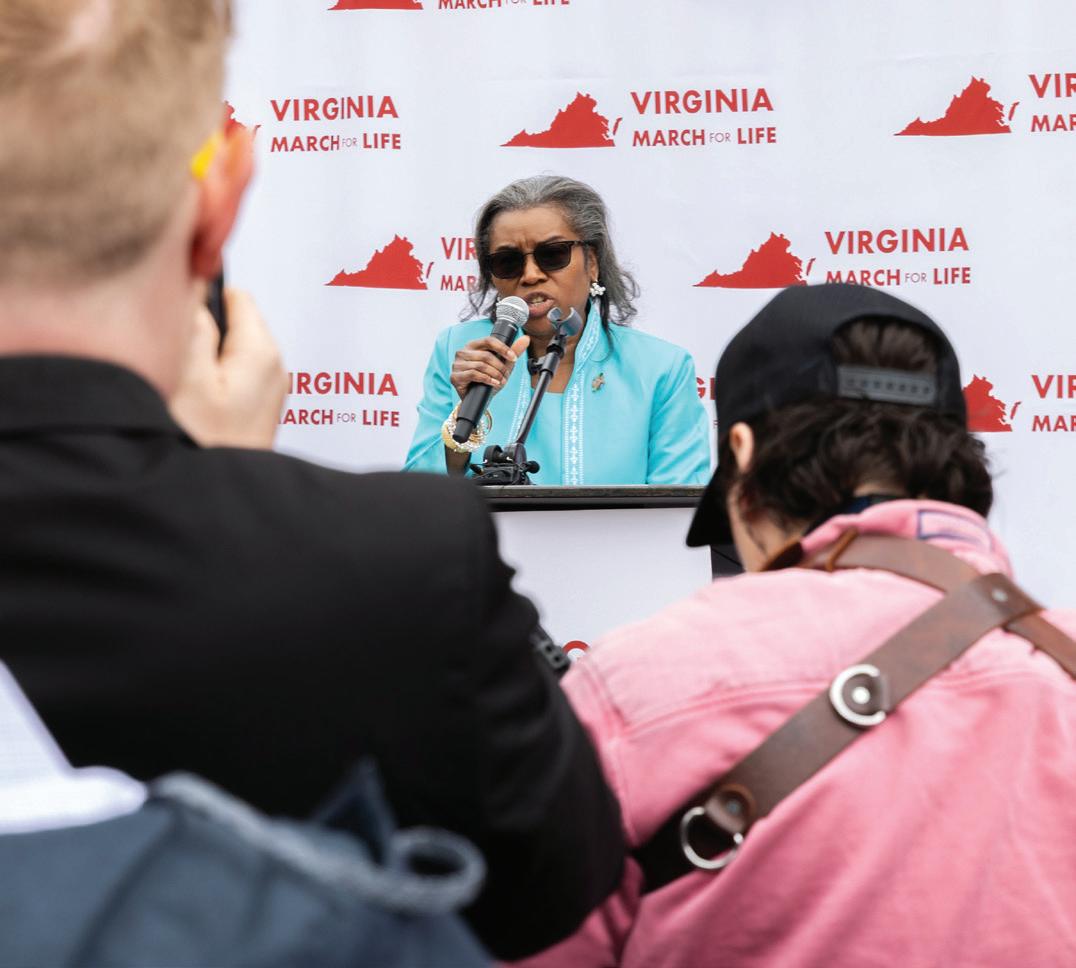

Continued from A1
historical record.
Among other plans, video oral histories will be recorded with individuals who had experiences or connections to Ealey, covering topics such as school desegregation, the court system and voting rights. The goal: to deepen public understanding of his life and legacy, as well as the broader histories of the country and community.
“We all know who the leaders in the African American community are and what their stories are,” Vigeant said. “But you have a story. Your neighbor has a story. People in your family have a story.”
Vigeant spoke highly of AAHGS as a collaborator due to their focus on historical accuracy and ensuring the contributions of all Americans are known and accounted for.
AAHGS members — both in-person and online — engaged deeply with the presentation, including offering questions for Vigeant during an enthusiastic Q&A session.
“Some of you may be familiar with (Ealey), some of you may not, but I think it’s something that we need to bring to frui-

site prior to determining appropriate next steps,” Avula’s Interim Press Secretary Julian Walker said in a statement. “If human remains are found on the property, any decisions related to the fate of the site would by necessity be made in accordance with applicable state laws and standards pertaining to historical sites and the potential removal and relocation of such remains.”
The marker was placed by the United Daughters of the Confederacy in 1939 to honor 100 South Carolina Confederate soldiers who died in a temporary hospital across from the marker and substation’s location, according to the marker’s inscription and other information.
In 2023, the marker saw over $16,000 in new improvements, including fencing and a bench. City officials, when asked for the rationale behind the expenditures, said the decision was in response to a citizen who wanted to honor their ancestor.
However, research and documentation from Mike Sarahan, a former City Attorney’s Office employee who has criticized Confederate tributes still present in the city, has challenged this explanation.
This marks the Avula administration’s first decision regarding the marker. Sarahan noted that the idea isn’t new — City Senior Manager and Historian Kimberly Chen suggested it during a Mayor’s Cabinet meeting in 2022 after her research failed to confirm whether the remains had been
relocated.
Sarahan said the search and the City’s potential actions raise questions about how officials will handle any remains found on the property and how the public might respond.
“What will be the City’s next step?” Sarahan asked. “I believe there will be a very big disagreement if the City locates bodies and then tries to leave them where they were, thrown behind the substation building or elsewhere.”
Sarahan said he felt “vindicated” by the City’s decision to investigate.
““For two years, the City administration ignored the concerns I was raising about the marker,” he said. “In two months, the new administration has come back to do the right thing.”
By Anne D’Innocenzio
The Associated Press
The co-founders of a company that makes lip products for darker skin tones no longer hope to get their line into Target. A brother and sister who make jigsaw puzzles celebrating Black subjects wonder if they need to offer “neutral” images like landscapes to keep growing.
Pound Cake and Puzzles of Color are among the small businesses whose owners are rethinking their plans as major U.S. companies weaken their diversity, equity and inclusion programs. The initiatives mostly date from the end of President Trump’s first term and entered a new era with the dawn of his second one.
Some Black-owned brands suspect big retail chains will drop partnerships they pursued after the police killing of a Black man in 2020 reignited mass protests against racial injustice. In today’s anti-DEI climate, other entrepreneurs worry about personal repercussions or feel pressure to cancel contracts with retreating retailers.
“It becomes a question of, are the big box stores going to be there? Do we even make any attempt to talk to these people?” Ericka Chambers, one of the siblings behind Puzzles of Color, said. “We are really having to evaluate our strategy in how we expand and how we want to get in front of new customers.”
A fighting chance
Chambers and her brother, William Jones, started turning the work of artists of color into frameable puzzles the same year a video captured a white Minneapolis police officer kneeling on George Floyd’s neck. Amid the Black Lives Matter protests over Floyd’s death, a fashion designer challenged large retailers to devote 15% of their shelf space and purchasing power to Black businesses.
The Fifteen Percent Pledge helped bring Puzzles of Color’s creations to Macy’s and Nordstrom’s websites in 2022. Last year, they made it into select Barnes & Noble stores. Chambers said she’s confident in the companies’ commitments but recalled a backlash after news outlets covered the brand, which is based in Texas.
“It does make us think about how we envision ourselves as far as the safety of not wanting to be attacked, because some people are very vocal about being anti-DEI,” Chambers said.
Vibrant depictions of Black women account for many of her and Jones’ puzzles. The pair figured they needed to provide more abstract designs for certain Barnes & Noble locations to give Puzzles of Color “a little bit of a fighting chance.”
Discontent over corporate diversity
The first prominent names in U.S. retail to

Brianna Arps, founder of Black-owned fragrance brand Moodeaux, holds her “Mini Mart” perfume in Atlanta on March 21, 2025. Her brand, carried by retailers like Urban Outfitters, faces new challenges as corporate DEI programs recede.
end or retool their diversity programs surfaced last summer amid threats of legal challenges and negative publicity from DEI critics, who argue that setting hiring, promotion and supplier diversity goals for underrepresented groups constitutes reverse discrimination.
After Trump won a second term in November, Walmart joined the corporate pullback. Target’s suspension of its comparable DEI targets in January stung Black and LGBTQ+ customers harder, largely because they regarded the Minneapolis-based company as more of a natural ally.
The company said it would continue working with a diverse range of businesses. Philadelphiabased Pound Cake’s co-founders, Camille Bell and Johnny Velazquez, said they don’t think they would agree at this point if the retailer offered to stock their lipsticks and lip oils.
“Target would have been a great boost to our business’ growth,” Velazquez said. “We’ll just find it elsewhere.”
To boycott or not?
Target’s stance has created a dilemma for brand founders with existing distribution deals. One is Play Pits, a natural deodorant for children that Maryland resident Chantel Powell launched in 2021. The product is found in about 360

Tuesday, April 8, 2025 Noon to 2:00 p.m.
Omni Richmond Hotel 100 S 12th St, Richmond, VA
Secure a sponsorship and reserve your tickets bit.ly/evga2025
Target stores.
The retailer’s DEI program “allowed us to employ amazing people, give back to our community, and exhibit Black excellence on and off the shelves,” Powell wrote on LinkedIn as civil rights leaders talked about boycotting Target.
She and some other product creators highlighted the impact boycotts might have on their businesses. They urged upset customers to intentionally limit their purchases to items from Black-owned enterprises. Some activists understood; others pushed the brands to join the protest by cutting ties with Target.
“The conversation around Black brands, that they should pull out of the retailers that they’re in, is unrealistic,” Powell said this month as a 40-day, church-organized Target boycott was underway. “We signed up to be in business. I understand why people are having that conversation of boycotts. As a Black founder, I also understand the side of how it can be detrimental.”
The post-DEI landscape
The owner of a Black-owned sexual wellness business with its own line of condoms has a slightly different take. Target started carrying B Condoms in 2020, and founder Jason Panda said the company told him late last year that it
didn’t intend to keep the prophylactics in the 304 stores that stocked them.
Panda says he isn’t worried. The product is available through Amazon and in more than 7,000 CVS stores, he said. What’s more, contracts with non-profit organizations and local governments that distribute condoms for free are the cornerstone of the business he established in 2011, Panda said.
“My money has never really come from mainstream,” he said. “We’re going to be protected as long as I can maintain my relationship with my community.”
Brianna Arps, who founded the fragrance brand Moodeaux in 2021, notices fewer grants available to Black brand creators these days. She used to apply for 10 to 15 every week or two; the number is down to five to seven, Arps said.
“A lot of the organizations that had been really vocal about supporting (Black businesses) have either quietly or outwardly pulled back,” she said.
Moodeaux was the first Black-owned perfume brand to get its perfumes into Urban Outfitters and Credo Beauty, which specializes in natural vegan products. In the current environment, Arps is looking to expand her brand’s presence in independent shops and to support other Black fragrance lovers.
“The resiliency of brands like ours and founders like myself will still exist,” she said.
Accentuating the positive
Aurora James, the founder of the Fifteen Percent Pledge, said nearly 30 major companies that joined the initiative remain committed to it, including Bloomingdale’s, beauty retailer Sephora, J. Crew and Gap. Ulta Beauty, another pledge signatory, and Credo Beauty carry Pound Cake products. Velazquez and Belle want to use social media to direct their followers to support retailers like Ulta and to bolster their online sales.
“It’s going to be fostering the community that we have and growing that,” Velazquez said. While making a strategic decision “to appeal to a broader audience” when selecting puzzles for Barnes & Noble, Chambers said she plans to introduce Black faces and experiences to the chain’s bookstores over time, in boxes of 500, 750 and 1,000 pieces. In the meantime, Puzzles of Color expanded its “Pride” collection in response to the DEI backlash. The subjects include Harriet Tubman, a mother and daughter tending a garden, and a little girl in a beauty supply store gazing up at hair accessories.
“Do we lean in all the way?” Chambers asks herself. “Part of why we started this was because we didn’t see enough Black people in puzzles.”




While lawmakers wrap up the recent veto session, here’s something they — and the governor — actually agreed on last year: honoring Black women. Passed in 2024, House Joint Resolution No. 8 makes April Black Women’s History Month in Virginia, a long-overdue salute to the educators, organizers and barrier-breakers who shaped the Commonwealth.
WHEREAS, for more than 400 years of Virginia’s history, Black women have shaped the Commonwealth’s history, facing combined racial and gender barriers, often with little recognition; and
WHEREAS, the lives and contributions of Black women in Virginia, both historical and contemporary, should be honored and celebrated in the Commonwealth; and
WHEREAS, Mary Elizabeth Bowser was born into slavery, gained an education, and later served as a spy for the Union in the Confederate White House during the American Civil War; after the war, she worked as a teacher, educating the formerly enslaved in freedman’s schools; and
WHEREAS, Rosa Dixon Bowser, born in 1855, was an educator, women’s rights activist, and social reformer, who founded the first African American teachers association and co-founded the Virginia State Federation of Colored Women’s Clubs and the National Association of Colored Women; and
WHEREAS, Lucy Simms, born into slavery, began teaching as a teenager and continued teaching for 56 years, becoming a dedicated and beloved educator of three generations of Harrisonburg students; and
WHEREAS, Evelyn Thomas Butts, a civil rights activist and Democratic Party leader from Norfolk, successfully fought toward overturning Virginia’s poll tax; she conduced voter registration campaigns and helped establish Concerned Citizens for Political Education and by the end of the 1970s was considered one of the most important Black political leaders in her region; and
WHEREAS, Barbara Rose Johns, at the age of 16, led the student strike at the racially segregated R.R. Moton High School in Prince Edward County in 1951, protesting the school’s poor conditions, and setting in motion events that would lead to the 1954 Brown v. Board of Education of Topeka case; and
WHEREAS, countless Black women throughout Virginia’s history, including, among many others, Elizabeth Keckley, Lucy Goode Brooks, Jennie Serepta Dean, Maggie Lena Walker, Dorothy Irene Height, Virginia Randolph, Virgie M. Binford, Winsome Earle-Sears and Yvonne Miller, have had a hand in shaping the Commonwealth’s history, creating pathways amidst racial and gender barriers for Black women and for all citizens of the Commonwealth to follow and benefit from; and
WHEREAS, Black women in the Commonwealth continue to face inequities and injustices in the present day and continue to break barriers; now, therefore, be it
RESOLVED by the House of Delegates, the Senate concurring, That the General Assembly designate April, in 2024 and in each succeeding year, as Black Women’s History Month in Virginia.
Last month, Wilma Wirt, a former Virginia Commonwealth University associate professor who taught, mentored and challenged many young writers over the years, died at age 94. While no official service is planned, it wouldn’t be surprising if her lasting influence brings together those whose lives and careers she shaped. There are many of us.
Wilma Wirt came to academia after a stint at the Washington Post as reporter and copy editor and made mentoring young journalists a big part of her job. Wirt, alongside Robert Button, assistant director for Academic Activities for the Virginia High School League, helped launch the VHSL-VCU Partnership in 1997. The initiative bridged the gap between professional journalism and education, offering courses in writing and design to support high school journalism programs and their advisers.
“Professor Wirt’s commitment to providing training and support for high school journalism teachers and their students in Virginia is simply unmatched,” Judy VanSlyke Turk, director of VCU’s School of Mass Communications told VCU News in 2003. “Her ability to create partnerships that involve high schools, newspapers and the School of Mass Communications working collaboratively is an incredible gift that she brings to scholastic journalism.”
The Texas native also worked to provide opportunities for her students, outside of the confines of her classroom and beyond the pages of VCU’s student publications. In 1994, Wirt launched VCU’s Capital News Service, giving student journalists a real-world platform to cover the Virginia General Assembly and state affairs. With stories reaching more than 100 news outlets, CNS sharpened young reporters’ skills while filling gaps in legislative coverage for local newspapers.
The students “Ms. Wirt” mentored are now editors, reporters, and media professionals. Capital News Service continues to train young journalists, and high school journalism programs in Virginia benefit from the foundation she built. Wilma Wirt may have filed her final deadline, but her work lives on in print, in classrooms and in the voices she inspired.

The ‘poorly educated’ and the plan to undermine them
After he won the Nevada Republican caucuses in 2016, the current president crowed about his victory. “We won with young. We won with old. We won with highly educated. We won with poorly educated. I love the poorly educated,” he said. Congressman Bobby Scott, D-Va., reflected on this comment as he called on Republicans to join Democrats in preserving the Department of Education.

The 47th president loves the poorly educated because he knows how to manipulate them, and because the less you know, the more susceptible you are to false rhetoric. The cuts in education, including reductions in services for those with physical and intellectual disabilities, will likely have a long-term negative effect on the state of education in the country.
The president justifies the cuts to the Department of Education with claims of poor test scores, but the first phase of cuts, which will separate at least 1,300 workers from their jobs, will also likely reduce the amount of educational data available. As a result, we may not be able
to determine from the Survey of Doctorate Recipients which academic fields need improvement, and we won’t be able to track graduates over time to analyze career trends. Fewer employees collecting data could also impact its accuracy.
Given this president’s antiDEI stance, we may not measure achievement gaps properly.
Many of my colleagues in research are concerned that this president and his administration,
which includes people with limited attention to detail, prefer aggregate numbers over disaggregated ones. This could mean reporting an overall unemployment rate without highlighting changes in Black, Latino and Asian unemployment. Data collection costs money, and the president’s aim is to cut budgets, including more than $600 million in grants, many of which benefit the “least and the left out.”
Further, many are concerned that the Office for Civil Rights has become less effective due to staff cuts. The office lost at least 240 employees, including 180 staff attorneys. Regional offices have been closed, making it more difficult for people to file civil rights complaints.
People aren’t taking this lying down. The National Education Association (NEA), the NAACP, and the American Federation of Teachers are all suing the Department of Education to prevent its closure. According to the NEA, “If the Education Department is broken apart, the rights of students, particularly our most vulnerable — to an education that imparts academic lessons, civil rights protections, and prepares them for their future — will be undercut.”
In addition, with fewer worker protections and an indifference to safety net supports, people will be pushed into low-wage work instead of workforce development activities that would better prepare them for good jobs in the future. This president loves the poorly educated because they are more easily exploited. We are heading into a dystopian nightmare unless Democrats take action. This president and his allies, assisted by a woman who once led Worldwide Wrestling (great preparation to lead the Department of Education), will reorganize or eliminate many critical functions of the department. Our young people will be the ones to pay.
This year, 3.9 million young people are set to graduate from high school. About 62% of them will enroll in two- or four-year
‘Signalgate’ reveals backward-looking military view
A hard-won Senate confirmation was not enough to keep the aroma of scandal away from Secretary of Defense Pete Hegseth for long.
As labels like “Signalgate” or, as I call it, “the Big Oops,” struggled for dominance in headlines, Hegseth’s fellow Republicans struggled to ignore calls, mostly from Demo crats, for him to resign.

One point that appears to be univer sally recog nized: Using Signal, an open-source encrypted messaging service, to detail plans for air strikes against Houthi rebels in Yemen was not a great idea.
That chat, as the world knows by now, mistakenly included Jeffrey Goldberg, editor-in-chief of The Atlantic, who received an unexpected invitation from President Trump’s national security adviser, Mike Waltz, who later said Goldberg was invited by mistake.
While the White House tried to diminish the seriousness of the security breach, the warplanning group chat, which included all of the highest-ranking defense Cabinet members and Vice President Vance, the snafu is alarming on multiple levels.
Trump’s slow response — expressing ignorance at first, then tentatively shifting blame to Waltz, who set up the group chat, and away from Hegseth — raised echoes of the historic Watergate-era question: What did the president know, and when did he know it?
The unsecured Signal group
chat may have violated the law and Department of Defense regulations, including a warning a week earlier about security vulnerabilities in the Signal app that were being targeted by nosy Russian hacking groups.
Yet, the Trump White House and leading Republicans in Congress have tried mightily to put a positive spin on the colossal blunder, even as Democrats pounced on it.
Perhaps the most poignantly passionate reactions came from Sen. Tammy Duckworth, an Illinois Democrat who lost her legs and partial use of her right arm as a Black Hawk Army helicopter pilot shot down by Iraqi insurgents.
In a blistering put-down, she called Hegseth a “f—ing liar” and demanded his resignation after he repeatedly insisted he did not share classified information and war plans in an unsecured Signal text message, a move that could have put the lives of American service members in danger.
Her fellow Illinois Democrat, Sen. Dick Durbin, the Senate Democratic whip and ranking member of the Senate Judiciary Committee, similarly called the allegations a serious national security risk and called for a Justice Department investigation. He also accused intelligence officials of misleading Congress and called for the Department of Justice to investigate the matter.
“We are talking about an attack on another country and the possible endangerment of the men and women in the United States’ military. This is a serious life-and-death matter and should be treated as such,” Durbin said.
And, even in politically polarized Washington, some concerned Republicans began to speak up with their own expressions of indignation. Rep. Don Bacon, R-Neb., a retired Air Force brigadier general who specialized in intelligence, said the White House was “in denial that this was not classified or sensitive data. They should just own up to it and preserve credibility.”
Indeed. After releasing his initial heavily edited account, Goldberg said he decided to release a more complete account after Hegseth claimed repeatedly and incorrectly that “nobody was texting war plans.” Similar denials came from CIA Director John Ratcliffe, as well as Tulsi Gabbard, director of national intelligence, and the president himself.
But the blame game offers little reassurance to our military pilots, among other service members, that their superiors have their backs.
As a Vietnam-era Army veteran, I enthusiastically agree. Even for a low-ranking draftee like me, little is more valuable than the assurances that your commanders have your back.
“The whole point about aviation safety is that you have to have the humility to understand that you are imperfect,” Lt. John Gadzinski, a retired Navy F-14 pilot who flew combat missions from aircraft carriers in the Persian Gulf, told The New York Times. “But ultimately, if you can’t admit when you’re wrong, you’re going to kill somebody because your ego is too big.” I recall similar advice from my own Army training days. Hegseth probably does too. It’s worth remembering. Sometimes a big ego can be your worst enemy.
The writer is a columnist for the Chicago Tribune.
colleges. What will the atmosphere on campuses be like this fall? Unless some lawsuits are successful, lower-income students, students with disabilities, and those needing extra services will be sidelined. DEI programs that offered counseling and support to some students are likely to be dismantled. Tens of thousands of students, if not millions, will be disadvantaged by the transformation of the Department of Education into the Department of MisEducation. This is the era of the MisEducation of the Marginalized. Scrubbing our history books of references to Black, Brown, and other patriots is just the first step toward dismantling any notion of critical thinking. This president and his administration are dedicated to ignorance, and indeed, they love the “poorly educated.” What does this mean for our nation’s future?
The writer is a Washington economist and author.




As Christians mark Lent, Muslims observe Ramadan and Jews celebrate Passover, leaders from numerous faith traditions are gathering each week in front of the U.S. Capitol, calling on Congress to show moral courage in the face of growing authoritarianism and attacks on democracy.
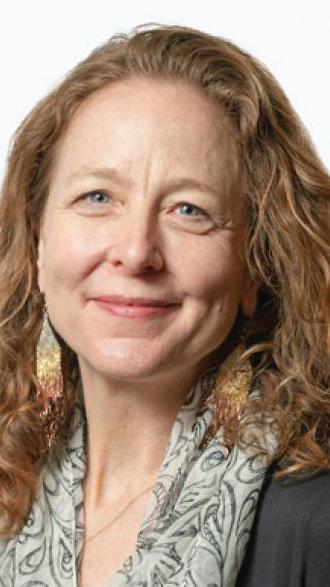
These spring vigils, called “Faithful Witness Wednesdays,” provide opportunities for people of faith to speak out while too many remain silent. They bring together conservative, progressive and mainstream religious leaders in a unified call for congressional leaders to follow the Constitution and their conscience above any president or party allegiance.
The resounding vigil chant directed toward Congress each week is simple: “What time is it?” asks the Rev. Adam Taylor of Sojourners. “Time for moral courage,” the crowd chants back.
Chanting it can be easier than practicing it.
As each day brings a new “shock and awe” tactic from President Donald Trump and Elon Musk, moral courage is being tested. My spirit feels battered by the immense harm and devastation of just two months. The administration’s self-proclaimed strategy of overwhelming opposition with a relentless onslaught of radical actions can feel like it is working.
My sister admitted to me recently that many of her friends are too paralyzed by fear and horror to be politically active right now. It’s understandable. Countless lives and livelihoods are at risk due to reckless, ignorant cuts to vital funding at home and abroad. Migrants are being dehumanized, identities are being erased, and students are being deported. Decades of work making our country and communities safer, healthier and more educated are being undone by the sweep of the president’s pen and the mass emails from
Musk’s Department of Government Efficiency team. While the courts are beginning to push back, many are asking: Where is Congress? Some lawmakers are speaking out, but far too few are showing the kind of moral courage their constituents and the country need right now. The Constitution balances federal powers across three co-equal branches of government for a reason: to prevent the very abuses we are witnessing.
Court challenges to some of the worst edicts—such as efforts to use the 1798 Alien Enemies Act to deport people without due process—will, hopefully, prevail. An anticipated travel ban affecting many Muslimmajority countries should also be challenged. But Congress must begin acting as an independent branch representing the American people in all our diversity. This is no time to pander to a president intent
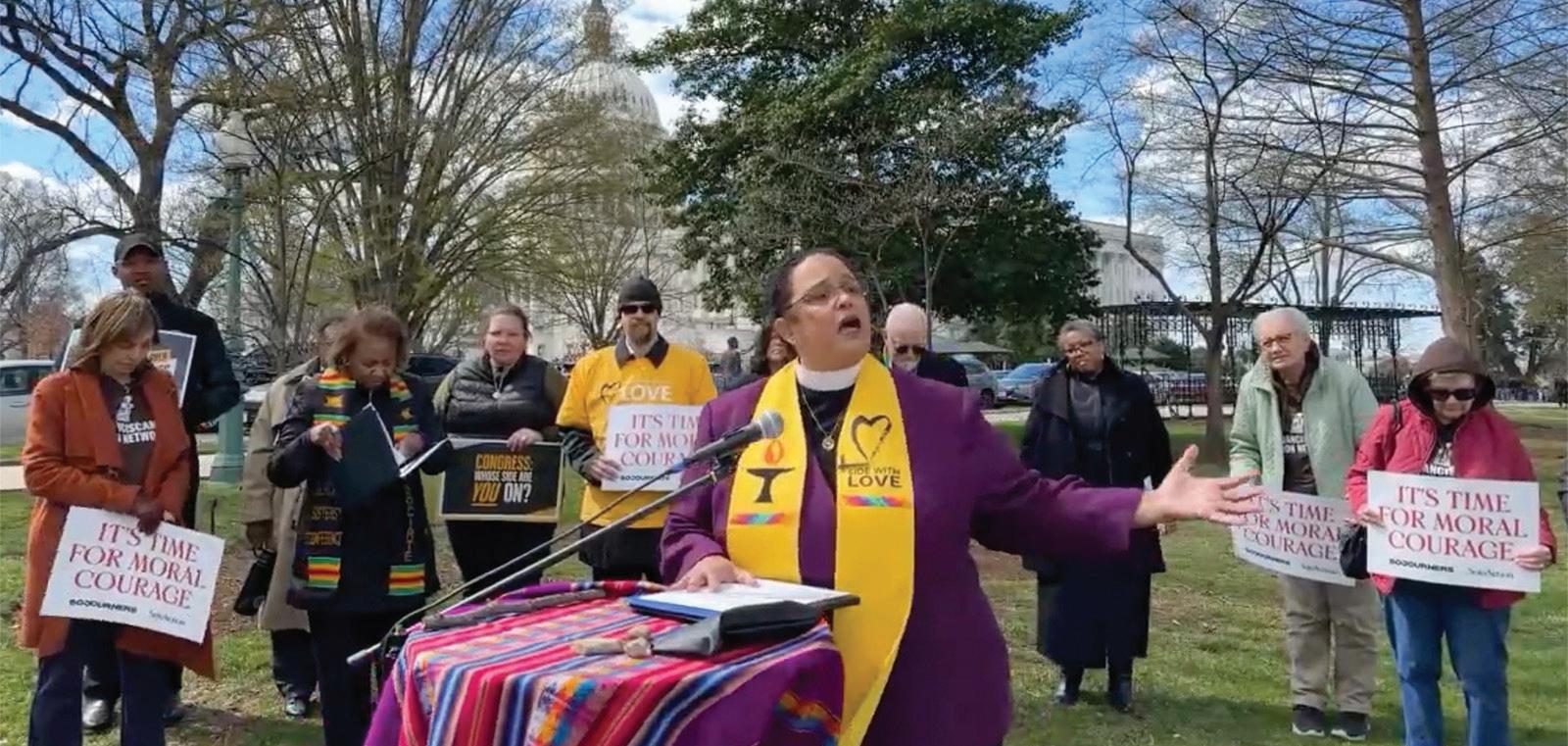
into congressional offices or setting up their own rallies.
Luckily, moral courage is
And we are beginning to see
More judges are issuing orders to stop illegal actions. Some in Congress are speaking out more frequently and openly. The State Department’s dissent channel has been used by more than 700 officials and counting. Likewise, people power is growing.
Last week, as I walked to the “Faithful Witness Wednesday” vigil, I found myself weaving through large groups converging on Capitol Hill, heading
Trust is a powerful word. It involves relying on someone to be honest and reliable. It becomes a belief in a person’s character and actions. Trust is crucial for building and maintaining healthy relationships.
The so-called “blue wall of silence” can never be taken lightly, as it undermines the critical level of trust between law enforcement officers and the public they are sworn to protect. This unofficial and unwritten rule encourages police officers not to report a colleague’s errors, misconduct or illegal activity.
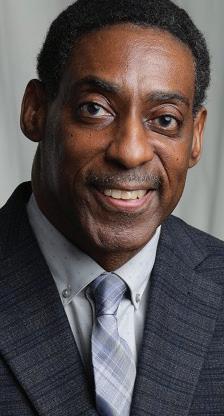
While certain officers have proven trustworthy and refused to be a brick in that blue wall, the wall of silence can tarnish the reputation of an entire department, where good officers are guilty by association in the eyes of a frustrated and fearful community. This feeling of mistrust has no boundaries. It applies to law enforcement officers regardless of race. It applies to members of local and state police departments. The desire for law enforcement officials to continue protecting each other from misconduct hinders accountability. As a result, the country remains trapped in a never-ending pattern of cruelty that transcends generations. Police brutality and corruption targeting communities of color will always be a stain on American history.
In a matter of hours after Donald Trump’s inauguration, the new administration revoked a Biden-era policy that prohibited arrests at places deemed to be “sensitive locations.” The previous policy, signed by former Homeland Security Secretary Alejandro Mayorkas, instructed Immigration and Customs Enforcement and Customs and Border Protection to refrain from apprehending unauthorized immigrants at or near locations “that would restrain people’s access to essential services or engagement in essential activities.”
Those sensitive locations included schools, courthouses, places of worship, hospitals, health care facilities, shelters and relief centers. By revoking a policy intended to prevent intimidation, the reversal of these protections has left immigrant communities vulnerable to enforcement actions in spaces where they should generally feel safe. This shift already has
created an environment of fear and uncertainty, discouraging individuals from seeking medical care, pursuing education, accessing legal resources or engaging with law enforcement.
In a statement defending the termination of the Biden administration rule, the Department of Homeland Security said the Trump administration “will not tie the hands of our brave law enforcement, and instead trusts them to use common sense.” In a separate presidential executive order, officials were directed to increase agreements with local
David W. Marshall
police authorities so they can arrest and detain unauthorized immigrants as deputized immigration officers.
Knowing that a blue wall of silence exists, can we truly trust that ICE and local police officers can work together to use common sense in every situation and hold each other accountable?
Can we trust that their decisions and behavior will be fair and unbiased regarding children attending school or a family going to a place of worship?
The new DHS policy gives authority to enter any house of worship nationwide. It allows field agents to use “common sense” and “discretion” to conduct immigration enforcement operations at houses of worship without a supervisor’s approval. Any house of worship in any community is a holy space, and its sanctity should always be respected. Having ICE and deputized local police officers disrupt a house of worship in any manner violates the reverence and peace it rightfully deserves.
A house of worship provides individuals with spiritual support, encouragement and guidance at a time when many people are living in fear. A church is a refuge and a safe haven that should always be protected and honored. This place of refuge should never be under threat when people become afraid to attend church in person. There were specific reasons the previous policy was in place. Latino ministry leaders say they have never seen such elevated fear and caution within churches. They attribute much of it to the administration’s decision to allow immigration enforcement in churches.
Drawn by Trump’s messages on the economy and traditional stances on issues like abortion and sexuality, Latino evangelicals overwhelmingly supported him during the 2024 presidential
election. Some Latino pastors now feel betrayed by the federal government’s harsh enforcement efforts.
Agustin Quiles, who heads an advocacy organization for Latino evangelicals in Florida, has been monitoring the anxiety of pastors throughout his state. He hears the unease of pastors who are worried about youth who don’t want to go to school out of fear that immigration agents might intercept them. He hears pastors say that another family stopped going to church because it was no longer safe.
For several years, Quiles led church leaders on trips to Montgomery, Ala., to study the Civil Rights Movement and the nation’s dark history of white supremacy.
“I never lived that,” Quiles said. “But it feels like they are trying to go back to those times where you would lynch anyone for any given reason. Is that the same spirit? Is that the same sin that we’ve never dealt with, where we have an obsession with just automatically adding the death penalty to someone who is undocumented?”
The answer to Quiles’ question is yes. It is the same spirit and the same sin that has terrorized Black people for generations. So, what will Latino evangelicals do once the dots are connected?
The writer is the founder of the faith-based organization TRB: The Reconciled Body.
Entrance lines wrapped around sidewalks as more people than I had ever seen in my 30 years in Washington, D.C., sought to meet their representatives. While the first Trump administration saw large street protests, the strategies this time are focused on advocacy and pressuring Congress to do its job.
As our faith vigil began, nurses exited buses intent on saving Medicaid while music fired up a crowd at an event to protect LGBTQ rights. The next
day, young children, families and teachers from D.C. public schools showed up with crayons and art supplies to deliver signs urging Congress not to cut their education. The energy was infectious, and it reminded me of the late Rep. John Lewis, who once said, “Democracy is not a state. It is an act.” There are countless actions we can take to uphold our democracy. Emails, letters, phone calls and visits to Congress help keep our representatives accountable. We need to encourage them to stand up, speak
out and do more. Gathering with neighbors for town halls, advocacy actions and vigils helps us build power together. Rest, joy, humor and time with loved ones are also vital forms of resistance that strengthen our resilience for the journey ahead. In the face of tyranny, every act of democratic participation is an act of moral courage, and every one of us can be part of the change we need. So, what time is it? Time for moral courage. The writer is general secretary of the Friends Committee on National Legislation.


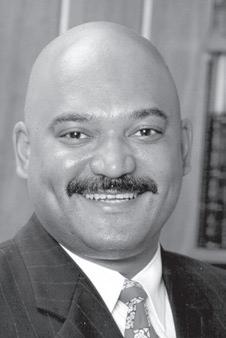



Free Press staff report
Under bright Friday afternoon skies at Virginia Union University, whistles blew and flags flew as history unfolded with the school’s first CIAA Flag Football Roundup.
Eight teams from the CIAA took the field, with games beginning at 1 p.m. The matchups were held at Hovey Field and the grass field next to Barco-Stevens Hall. Four games were scheduled for Saturday on the campus. According to reports, the inaugural season is considered intramural competition for the participating teams.
“The opportunity to not only expand, but giving young women the opportunity to be at the forefront of the expansion and provide another phenomenal competitive opportunity is one we’re proud to offer,” said CIAA Commissioner Jacqie McWilliams-Parker. “We’re also incredibly grateful for the NFL’s role in providing all the necessary assistance to help grow this sport throughout the nation at all levels.”
Women’s flag football features an average roster size of 25 players, with games played in a 7-on-7 format. Each contest consisted of four 12-minute quarters on an 80-by40-yard field.
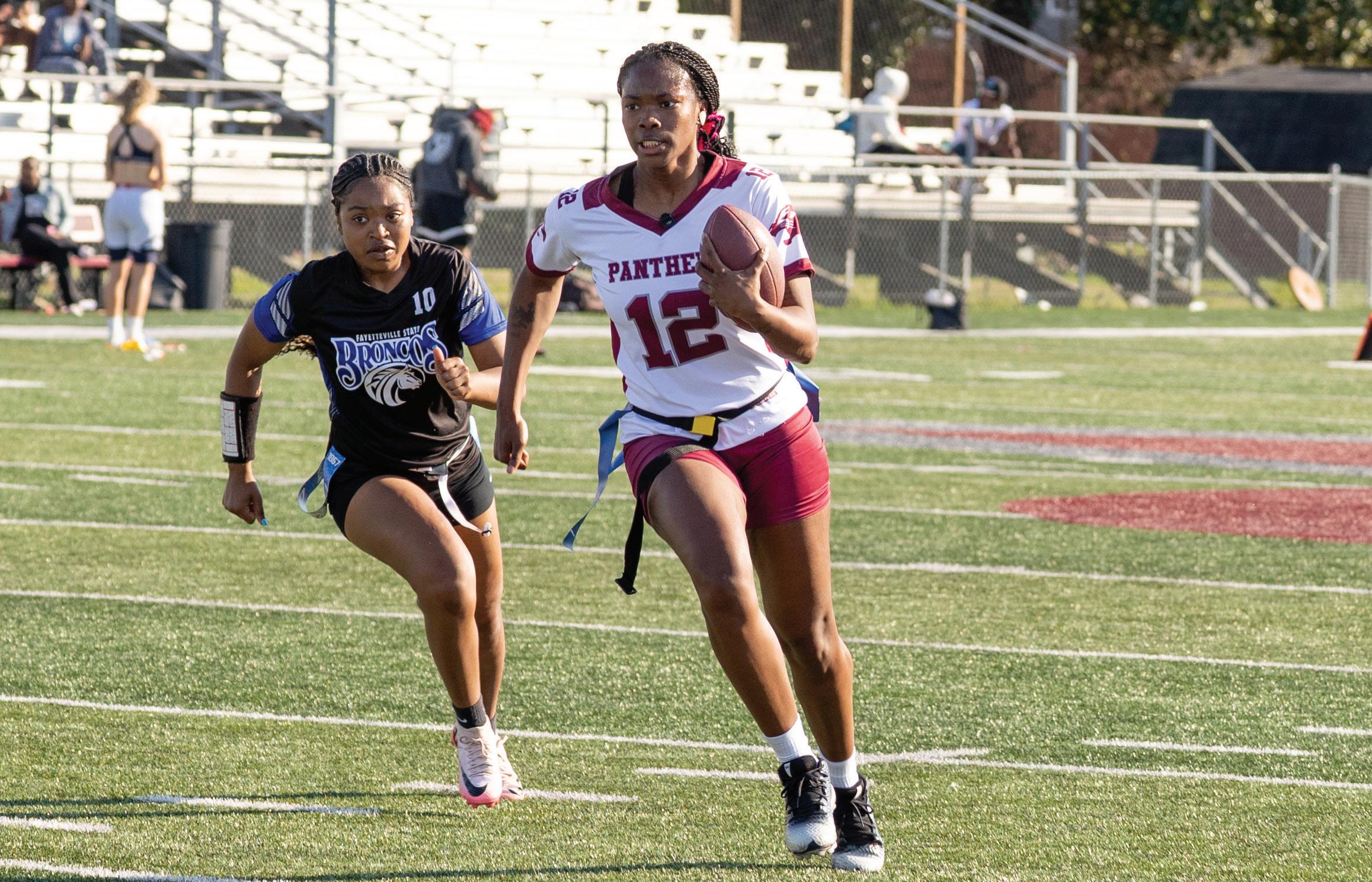
Free Press staff report
Celebrity trainer and Petersburg native Don “DB Donamatrix” Brooks brings his signature fitness event back home with the annual Donamatrix Day Fit Fest on Saturday, April 5, at Petersburg High School.
The free, family-friendly festival runs from 9 a.m. to 3 p.m. and features live workouts, youth sports tournaments, health screenings and Brooks’ signature Donamatrix Workout. Known for his slogan, “Mind Right. Body Ready,” Brooks promotes physical and mental wellness through his training methods.
Established in 2018 when the City of Petersburg proclaimed April 3 as Donamatrix Day, the event has grown into a weekend-long celebration of health and fitness. This year, Virginia Commonwealth University Massey Comprehensive Cancer Center, Molina Healthcare, and the Petersburg Chapter of The Links will offer health education and screenings. Cool Beanz Cafe will provide food and drinks, while 106.5 The Beat’s Kool DJ Foot will bring the energy with music.
The weekend begins Thursday, April 3, with “The Senior Matrix Experience”, a specialized workout session for adults 60 and older 10 a.m. at Vernon Johns Middle School. Later that day, Brooks will host the “DB for 3 Charity Basketball Shootout” at 5 p.m. at Petersburg High School. The shootout replaces the event’s annual gala, with all proceeds benefiting the City of Petersburg Recreation, Special Events and Volunteerism Department.
All events are free, though registration is required for some activities. More information is available at donamatrixday.com.

in Petersburg. The annual fitness festival returns April 5, promoting health and wellness for all ages.
Phil Martelli Jr. named VCU
Free Press staff report
Virginia Commonwealth University Men’s Basketball has a new head coach, and he’s no stranger to building success. Phil Martelli Jr., who was formally introduced at a press conference March 27, takes over the program after leading Bryant University to new heights over the past two seasons.
Martelli brings a strong track record to VCU, having led Bryant to America East regular season and tournament championships in 2024-25, along with the Bulldogs’ second NCAA Tournament appearance since moving to Division I. He finished his two seasons at Bryant with a 43-25 record, including a 25-7 mark in America East play. His teams were known for their fast-paced style, ranking nationally in tempo and scoring offense.
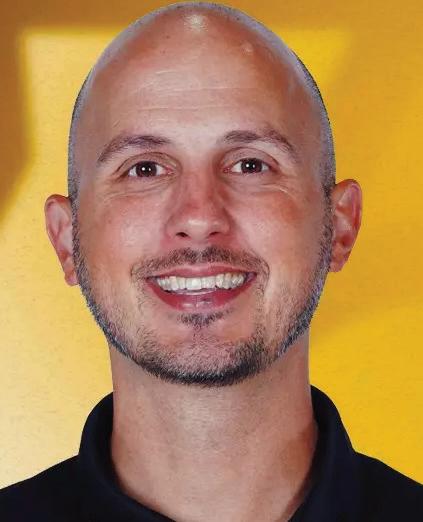
“Phil has proven himself as a winner throughout his career,” said VCU Vice President and Director of Athletics Ed McLaughlin. “He helped engineer a historic turnaround at Bryant and has made his own path with hard work, good character, and a commitment to developing young men into the best versions of themselves through sport.”
Martelli, 43, replaces Mike Rhoades, who left to take the head coaching job at Penn State. Before his time at Bryant, Martelli spent seasons as an assistant coach at the University of Delaware, Niagara, and Saint Joseph’s, where he was part of a team that made NCAA Tournament appearances in 2001 and 2003.
Darwin Espinal responds in the
a

A 2003 graduate of Saint Joseph’s, Martelli played four seasons for the Hawks and earned his degree in marketing. He is the son of former Saint Joseph’s Coach Phil Martelli and the brother of former VCU Director of Operations Jimmy Martelli.
“I am excited to help carry on the legacy that has been set here and help elevate it to the next level,” Martelli said. “VCU has long been a dream job for me because of its high standards of excellence and national brand.”

Free Press staff report
The Richmond Kickers (2-2-0, 6 points) fell 2-1 to Forward Madison (1-1-0, 3 points) in a hard-fought first leg of the Henny Derby on Saturday.
The Henny Derby, a rivalry born from the supporter groups of both clubs, features two of the league’s most passionate fan bases.
Richmond created the first major scoring opportunity in the eighth minute when Matt Bolduc broke free on the right side, weaving past defenders before losing center back Jake Crull entirely. Bolduc fired a shot, but Madison goalkeeper Wallis Lapsley got a hand to it to make the save.
The Kickers nearly found the net again in the 20th minute. Maxi Schenfeld delivered
a well-placed corner kick to the far post, where a teammate redirected the ball, but it struck the post and bounced out.
Madison responded with a flurry of chances in a five-minute span. With only one defender back, Devin Boyce drove at Kickers goalkeeper Will Sneddon, but the 19-year-old stood tall to deny the attempt.
Sneddon then collected a corner kick and a free kick moments later to keep the match scoreless.
The Kickers countered off Sneddon’s punt, leading to another corner kick. Nils Seufert sent in the delivery, and Klaidi Cela connected with a header, but the attempt sailed just over the crossbar.
Madison broke through in the 40th minute when a loose ball in the box led to multiple saves from Sneddon before Derek
Gebhard capitalized on the rebound to put the visitors ahead 1-0. Richmond came out aggressive after halftime, with Darwin Espinal firing a low shot in the 46th minute that had Lapsley off-balance before deflecting off a Madison defender for a corner.
Madison extended its lead in transition, but the Kickers answered quickly. Off the restart, Richmond captain Dakota Barnathan won a 50/50 ball at midfield and sent it to Espinal, who sprinted up the left wing. Espinal cut inside at the top of the box and unleashed a powerful strike into the top corner to pull the Kickers within one. Richmond pressed for an equalizer, but Madison slowed the pace and held on for the 2-1 victory. Sneddon finished with four saves on the night.
Anthony Oppermann is the general manager of the Richmond Flying Squirrels, the team announced Monday. Oppermann takes over as the team prepares for its final season at The Diamond before moving to CarMax Park in 2026. He replaces Ben Rothrock, who has served as general manager since 2017 and chief operating officer since 2023. Rothrock will remain COO focusing on the construction of CarMax Park while Oppermann oversees the club’s day-to-day operations.
“It’s natural that Anthony Oppermann should become the third GM in Richmond Flying Squirrels history. Flying Squirrels Managing Partner Lou DiBella said. “Opp has been an integral part of what we do and has earned this exciting opportunity.”
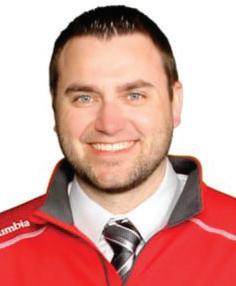
Oppermann, a member of the Flying Squirrels’ original staff, is in his third stint with the club. He returned in 2023 as an assistant general manager before serving as chief marketing officer last season.
“I still vividly remember the ‘Baseball is Back’ press conference on Sept. 23, 2009, which was the first event I worked as a member of the Flying Squirrels,” Oppermann said. “The gravity of this moment is not lost on me and I look forward to working with Lou and our ownership group, my teammates and our community and corporate partners to make Richmond the new standard for our industry.”
A native of La Grange, Texas, Oppermann joined the team in 2009 as director of media and was part of its original broadcast team through 2012. He later returned to Richmond as executive director of marketing and promotions from 2017 to 2021. He has spent parts of 15 seasons in professional baseball with experience at Round Rock, Daytona, Potomac, Reading and Houston. Before rejoining the Flying Squirrels in 2023, he was communications and marketing manager for the Galveston Bay Foundation in Texas.
The Flying Squirrels open their final season at The Diamond on Friday against the Akron RubberDucks, with the first pitch set for 6:35 p.m. Hall of Famer and former Richmond Braves pitcher John Smoltz will throw out the ceremonial first pitch. Tickets for all 2025 Flying Squirrels games are on sale at SquirrelsBaseball. com/tickets.
A recent report from the National Endowment for the Arts (NEA) has reaffirmed what many have long believed — arts education has a profound and positive impact on the academic, social and emotional development of school-age children. However, this crucial aspect of education is under threat due to federal funding cuts to the Department of Education, the National Endowment for the Arts and other agencies and programs that support arts education. These cuts mainly affect schools in underserved communities, limiting access to creative development.
Melody Walker aims to fill the gaps for children who share her passion for the arts through The Society, hopes a nonprofit dedicated to enhancing, exposing and promoting young talent in the arts. As president of the Richmond chapter, she is committed to supporting and showcasing creative talent. Her enthusiasm harkens back to her days in Richmond Public Schools where she played the flute in the band.
“There’s a feeling when you’re a part of a band,” she said. “It’s so powerful. It’s a feeling of community and belonging.”
For Walker, helping the kids who go on to choose music as a career is uniquely fulfilling. One student, supported by The Society since middle school, went on to study at the prestigious Berklee College of Music. Another student, supported by The Society since age 11, now plays the violin with the Richmond Youth Symphony.
“I love watching them grow into their own as artists,” Walker said. Although her career in professional development and her work with The Society don’t allow for a lot of downtime, Walker takes time to pursue her love for interior design and gardening. She admits she would have chosen a career in design if she had known she could make a living as a designer.
With two daughters in college, Walker discovers new restaurants, travels, and bingewatches TV shows with her husband, who was her college sweetheart.
“We met during freshman year and became best friends,” Walker said. That foundation made for such a strong relationship.”
Meet a performing arts supporter and this week’s Personality, Mary Walker:
Occupation: Consultant at Women of Color in Pharma.
Date and place of birth: April 14 in Richmond.
Where I live now: Glen Allen.
Education: Bachelor’s in biology with a psychology minor from The College of William & Mary.
Family: Husband, Derrick Walker; daughters, Kyndall and Klyne; dog, Kingston; mother, Joyce Randolph-Sutton; father, Lloyd Randolph.
What is The Society: We’re a national nonprofit organization of women dedicated to enhancing, exposing, and promoting children in the arts for the betterment of our communities. As volunteers, we recognize and showcase the exceptional talent of young artists by organizing programs that celebrate these
artists and encourage charitable contributions to support their artistic growth and development.
Mission: To promote friendship and social exchange among members; to function as a resource for young people in the arts; and to promote educational, civic and cultural experiences within the community.
When and where founded: In May 1983, four visionary women, Celeste Burton, Davetta Madison, Dorothy Patton and Myrtle Roane, founded The Society in Washington, D.C., to foster friendship among professional women of color and promote the arts among young people.
When was the Richmond Chapter of The Society founded: We were chartered on Jan. 9, 1994.
Local founders: The Richmond Chapter was organized by Iris Dance. Charter members are: Christine Ballard, Lelia Foster Banks, Paula Brown, Iris Dance, Barbara Jackson-Ingram, Lerla Joseph, Betty Pinn, La Vorne Reavis, Jacquelyn Thomas and Esther White.
Number of local members: We have 21 active members and 13 life members.
Number of national chapters: The Society has 33 chapters across the U.S., providing scholarships, grants, stipends and other opportunities to help young people experience the exciting dimensions of artistic expression.
What it takes to be a member of The Society: The Society is specifically designed for professional women of color dedicated to serving and promoting the arts. Membership requires a commitment to foster friendship among members and contribute to community service, mainly supporting young people in the arts. Members are expected to actively engage in the organization’s events, programs and service projects, helping to recognize and support youth artists.
Why I became affiliated with The Society: I joined The Society in April 2020 to become more engaged in my community and expand my social network as we navigated the pandemic.
With my youngest child nearing high school graduation and my oldest entering college, I found myself with more personal time to dedicate to activities that enrich my life and broaden my social connections. The Society was a perfect fit. The members’ warmth and inclusivity made their mission resonate deeply with me.
When elected Richmond Chapter president: I was sworn in as president in June of 2024. No. 1 goal as Richmond Chapter president: To establish the Richmond Chapter of The Society as a widely recognized organization, known for its dedication to supporting youths in the arts.
The strategy for achieving the goal: Forging strategic partnerships with like-minded organizations to enhance our
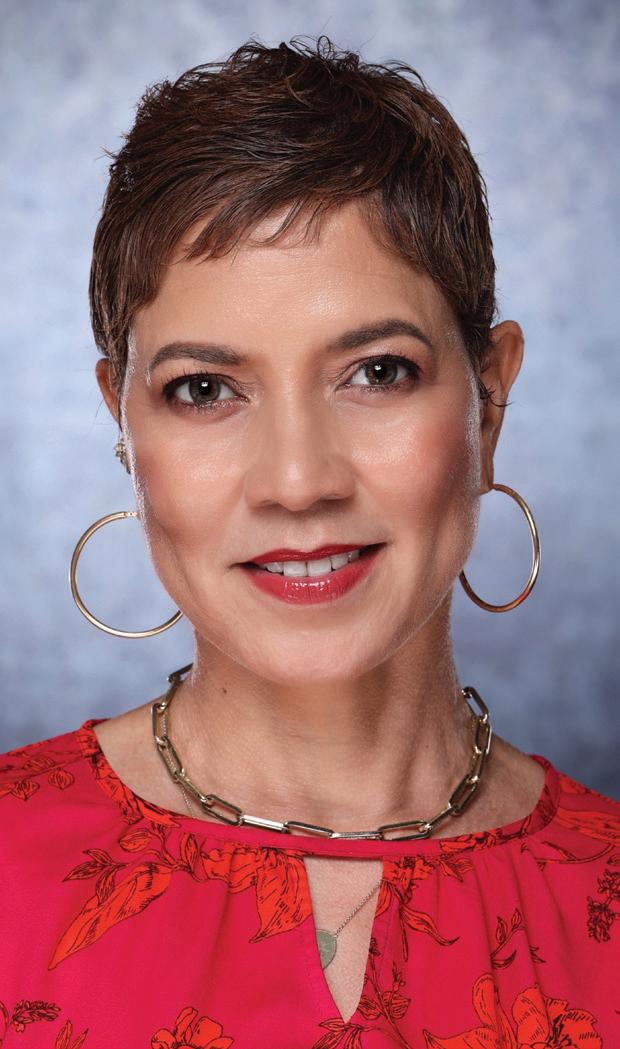
mission through collaborative artistic initiatives. I want to increase membership and cultivate collaborative partnerships to amplify our impact, elevate The Society’s presence, and further our mission of empowering young artists.
Our biggest challenge: Fundraising and membership growth. Expanding our membership is essential to distributing the responsibilities required to sustain and grow our initiatives. We need individuals with a passion for the arts and experience in marketing, graphic design, fundraising and strategic planning to help drive the organization forward. Additionally, increasing our financial resources will allow us to enhance our programs and scholarships to reach more young artists and establish stronger partnerships within the arts community.
Who we partner with locally: Public schools in Richmond and Henrico, the Richmond Boys Choir, The Butcher Brown Jazz Quintet, Musical Creations Foundation, the Black History Museum of Virginia, Virginia State University Gospel Chorale, performers from the Richmond Symphony Youth Orchestra, Cade Foundation, Richmond Behavioral Health, Mending Fences and Naima Burrs, director of orchestral activities at Virginia State University
How I have seen The Society make a difference in Richmond: The Society has significantly impacted Richmond’s youths by providing financial and programmatic support to young artists over the past 30 years. We have sponsored fees for symphony programs, traveling performances, and community arts festivals, ensuring that talented students have access to enriching artistic experiences. Through funding for master classes, summer camps and scholarships, we have helped students develop their skills and pursue their creative passions during their middle, high school and college years. Additionally, all showcase participants receive a donation to support their music and arts education, helping to equip them with the necessary supplies for their school programs. Why the arts are vital to our

youths: The arts speak to your spirit. Whether experiencing the art as an observer or actively creating and performing, the experience is deeply enriching and empowering. Beyond creative expression, the arts are crucial in personal development, building confidence and emotional resilience, and a sense of belonging. Studies have shown that youths involved in the arts perform better academically, develop stronger problem-solving skills, and are less likely to engage in risky behaviors. Providing access to artistic opportunities not only nurtures talent but also offers a positive outlet for self-discovery and mental well-being. I have seen firsthand how the arts transform lives, and I am committed to expanding these opportunities for young artists.
How to help the Richmond Chapter of The Society further its mission: By donating, you’ll help us expand our programs
and ensure that the arts remain accessible to underserved communities. Your support provides opportunities for talented youth who might otherwise miss out on arts education due to financial barriers. Email us at societyincrva@gmail.com for more information.
Upcoming events: We are hosting a panel discussion, “Artistry Unlocked: Navigating Careers in the Arts,” on April 11. This is an invitation-only, 100-student event in collaboration with Richmond High School for the Arts. While we have reached our maximum, we plan to have similar programming for additional students in the Richmond area. Our Biennial Showcase, our signature event celebrating young artists and their incredible talents, will be in 2026. As part of our commitment to supporting youths in the arts, each participating school or artist receives funds to help cover the costs of art supplies, music programs, or other artistic needs. We look forward to sharing more details as the date approaches!
How I start the day: After enjoying my morning coffee,
I dedicate a few minutes to closing my eyes, taking some deep breaths and reflecting on aspects of my life for which I am grateful.
The three words that best describe me: Dependable, empathetic and enthusiastic.
Dream dinner party guest: I would invite Michelle Obama because I admire her relatable personality and ability to balance multiple roles with grace.
Top three on my playlist: Sade, Snoh Alegra and Kendrick Lamar.
Something I love to do that most people would never imagine: Yard work.
Inspirational quote: “Gratitude turns what we have into enough …” by Melody Beattie.
Person who influenced me the most: My fourth-grade teacher, Mrs. Dunn, who helped me find my voice at a very young age and instilled leadership qualities that have served me throughout my life.
Next goal: Be very intentional about making consistent time for self-care.
Each year, the Virginia Lottery’s Thank a Teacher campaign encourages the public to send custom thank-you notes to Virginia K-12 public school teachers.
These thank-you notes are provided by the Virginia Lottery, and each note contains a code that the teacher can use to enter a drawing for a chance to win $2,500 plus $2,500 in supplies for the teacher’s school!
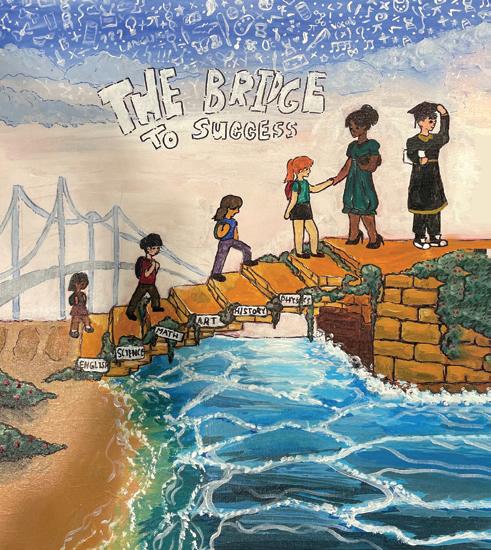
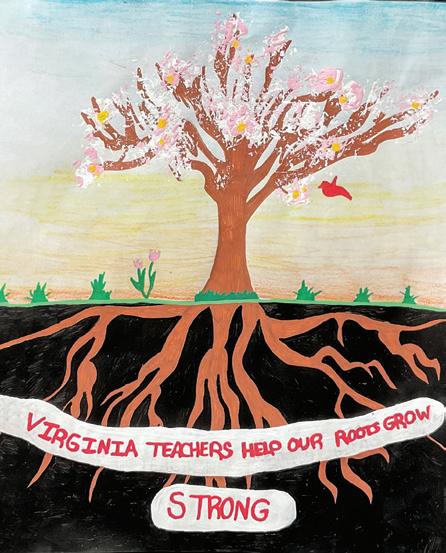






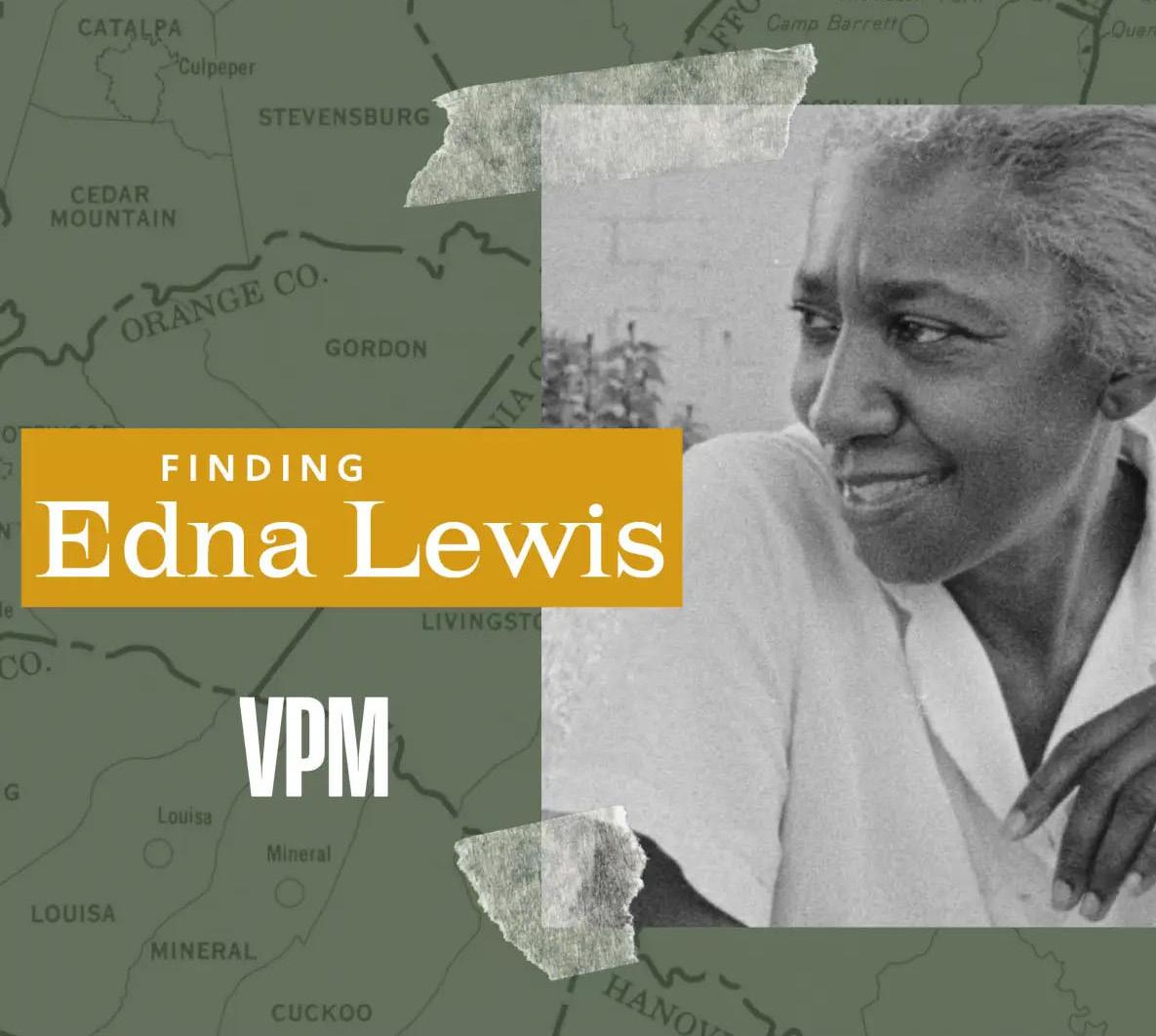
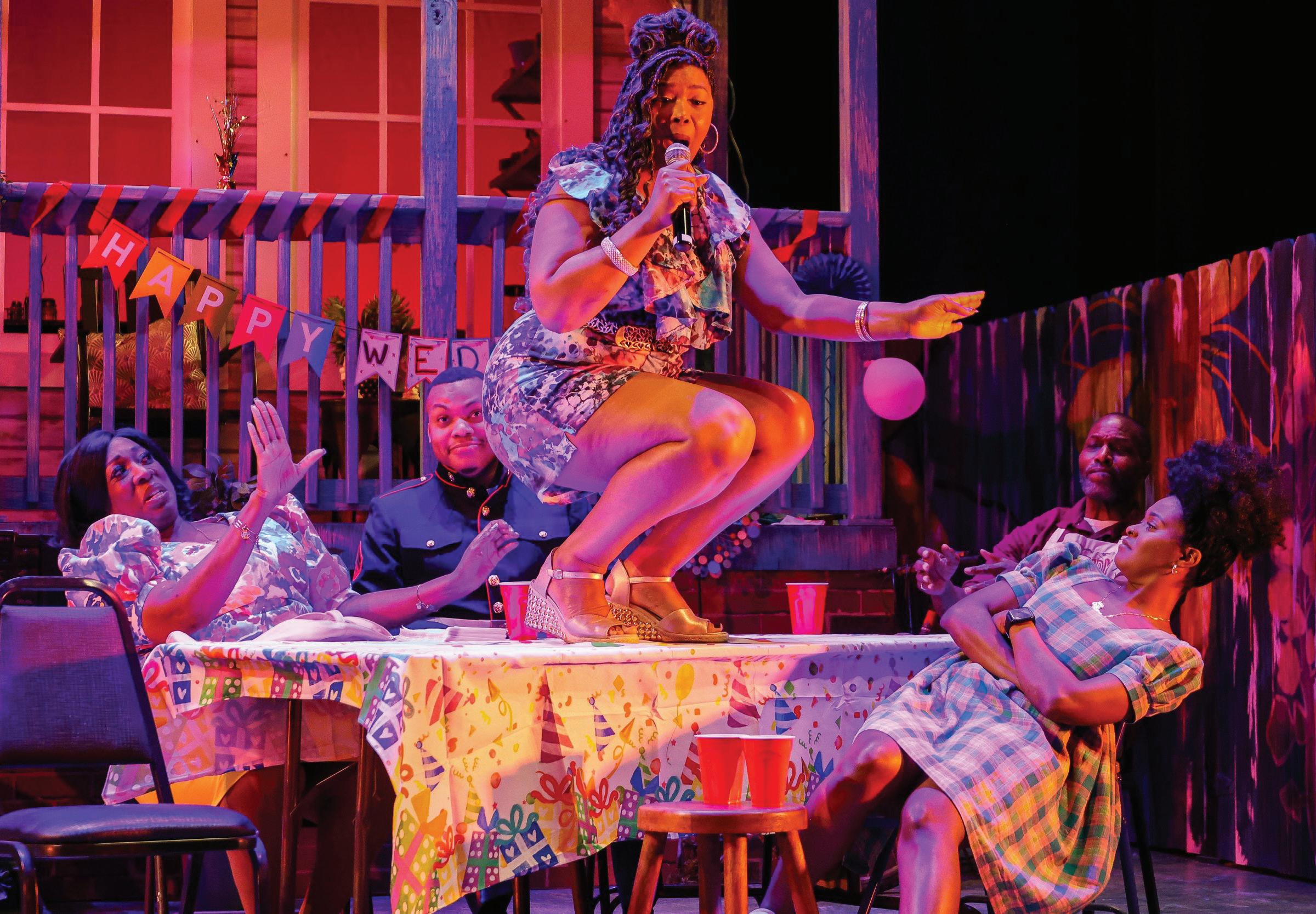
‘Fat
By David Timberline
As soon as the cancellation of “Fat Ham” was announced, the leaders of Richmond Triangle Players (RTP) and Firehouse Theatre started talking.
Originally scheduled to run in Richmond starting March 1, the show was a co-production between Virginia Repertory Theatre and Norfolk’s Virginia Stage Company. It played its scheduled performances at Virginia Stage in January and February but Virginia Rep scuttled the Richmond run, citing financial concerns.
Phil Crosby, executive di-
rector at RTP, felt an immediate sense of loss. He and Nathaniel Shaw, Firehouse’s producing artistic director, saw a unique opportunity to work together to save the show, thanks in part to an unexpected opening in Firehouse’s schedule.
In a press release, Crosby and Shaw announced “Fat Ham” will be staged for five performances at Firehouse from April 16 to 19.
“As a theatre focused on lifting up queer experiences, we felt the particular pain of losing this important Black and queer story,” Crosby said in the release. “We are excited
Free Press staff report
Lewis Ginter Botanical Garden recently opened its outdoor art exhibition, “Homes & Habitats,” featuring works by seven local artists. The exhibition, which runs through Sept. 28, showcases large-scale installations that explore ecosystems and human interactions with nature. Participating artists include Heather Beardsley, Bethany Allen, Matt Lively, Tim Harper, Dietrich Teschner, Alfonso Pérez Acosta, Tori Qualls, and Sam Christian. Notable installations include “Conversation with Bees” by Beardsley and “The Love Nest” by Aleyah Grimes, which are designed to be interactive and educational. The exhibition challenges visitors’ perspectives on natural environments and human connections through works like “Four Friends,” “Interwoven Ecosystems,” and “The Barefoot Circle,” according to a press release. The exhibition is included with regular garden admission and free for members. For more information, visit lewisginter.org.
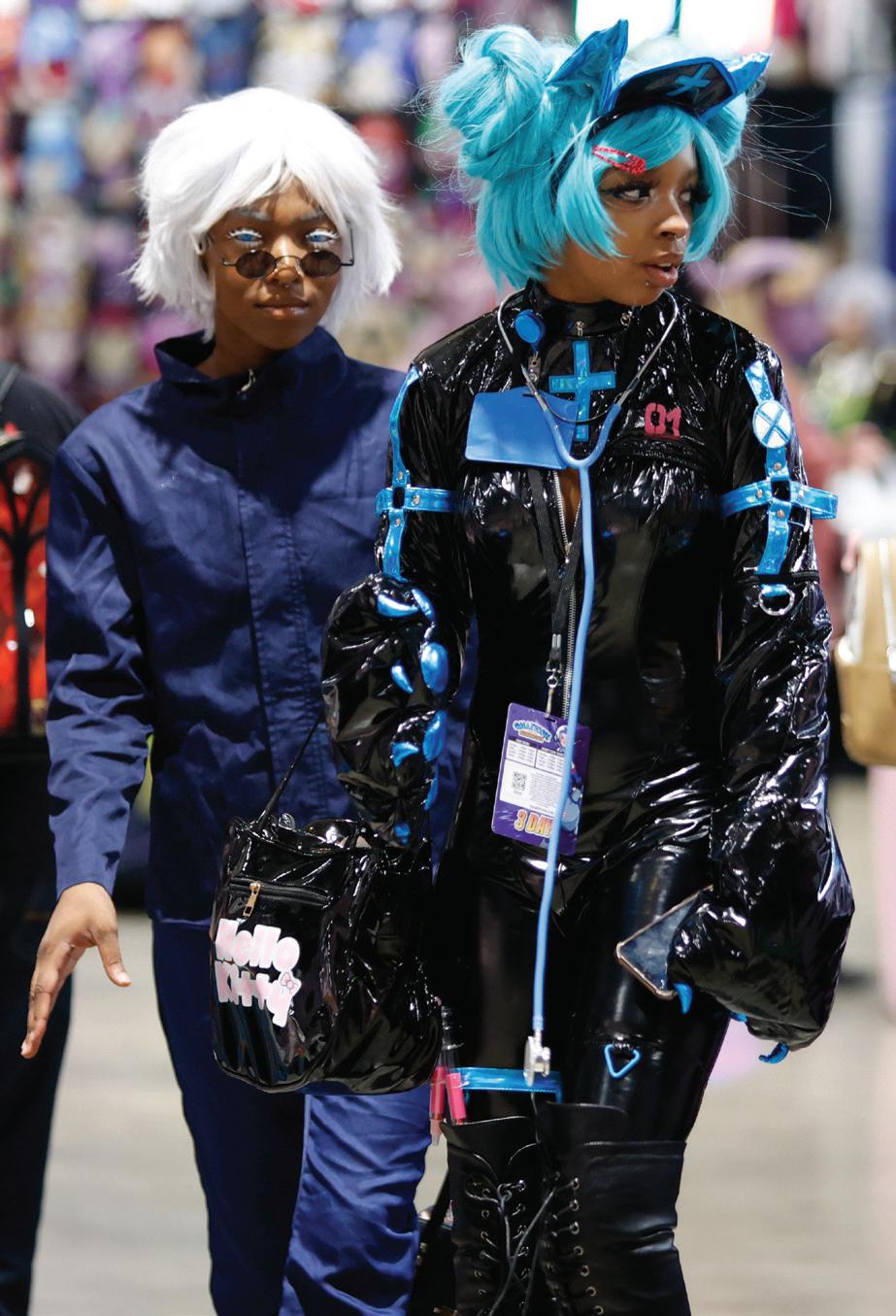
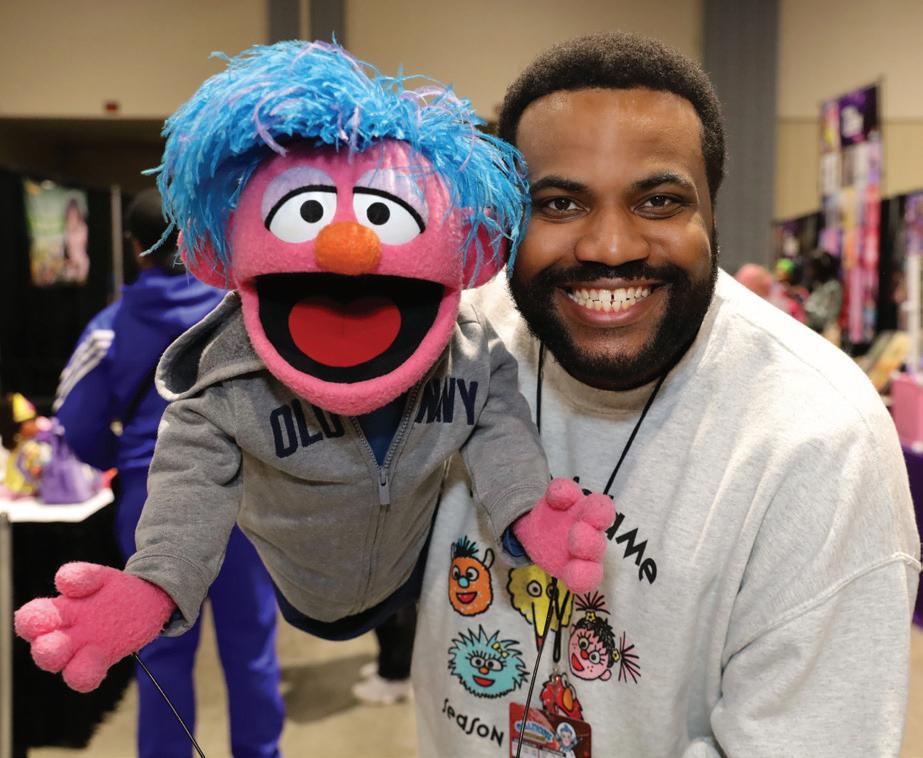


Hannah Bishop and her daughters, Salomé and Sol Perez, explore The Barefoot Circle, a circular rock garden created by their husband and father, artist Alfonso Pérez Acosta. The installation is part of the new exhibition “Homes & Habitats” at Lewis Ginter Botanical Garden, which continues through Sept. 28.
GalaxyCon Richmond brought more than 22,500 fans to the Greater Richmond Convention Center for the four-day pop culture festival. Attendees celebrated everything from comics to gaming, with celebrity panels, artist signings, photo ops and vibrant cosplay.




we found a way to share it with our community.”
“Fat Ham” reimagines the classic Hamlet storyline, only explicitly centered on a gay Southern college student named Juicy. Playwright James Ijames won a Pulitzer Prize for his adaptation of Shakespeare’s drama into a comic tragedy, where particular attention is given to Juicy, as a self-aware young Black man, trying to break out of cycles of trauma and violence.
Shaw said he and Crosby have been working diligently “to see if there was a way to reclaim this experience, both for the artists who were excited to bring this story to Richmond, and for the audiences here who were clamoring to see it.”
The resulting production will be altered from the Virginia Stage run as the original set design would not fit on the smaller Firehouse stage. The number of changes that will need to be made, even if relatively small, have the theater companies calling this staging of “Fat Ham,” “a concert production.”
The full cast and creative team of the original production will be involved in the new staging. While Virginia Rep will not directly participate, many of their contributions to the original production will be maintained, including costumes and props.
“The leadership at Virginia Rep has been incredibly cooperative and generous in helping us make this new production happen,” Shaw and Crosby said, “including donating coproduced elements and giving permission to Concord Theatrical, which licenses the play, to use their advance payments to cover the licensing expense of this limited engagement.”
More details about “Fat Ham” can be found at firehousetheatre.org.
This article originally appeared on styleweekly.com.
By Adelle M. Banks and Fiona André Religion News Service
Gospel singer and pastor Marvin Sapp defended his fundraising approach during a radio interview March 31, following backlash over a viral video from a nine-monthold call for donations.
In the video, recorded at a Pentecostal Assemblies of the World (PAW) conference in Baltimore in July 2024, Sapp can be heard urging attendees to donate $20, saying, “There’s 1,000 of you tonight and those that are watching … If I get 1,000 online to give this, if I get 1,000 in the sanctuary to give this, that’s $40,000 tonight.” The video, which went viral, sparked a debate about the culture of giving in Black churches.
Sapp, a Grammy-nominated artist best known for his hit “Never Would Have Made It,” appeared on Erica Campbell’s “Get Up Mornings” radio show to clarify the situation. He denied accusations that he had locked doors to force donations, explaining that no doors were actually locked in the convention center and that his request was meant to support PAW’s International Summer Convention.
“People said that I literally locked my people into my church until they gave me $40,000 and that’s not true,”
Free Press staff report
The Virginia Interfaith Center for Public Policy appointed Dr. LaKeisha Cook as its new executive director, the organization announced Tuesday. Cook, who served as co-executive director for the past year, succeeds Kim Bobo, who retired last week after nearly a decade leading the nonprofit. Cook is the first African American to lead the 33-year-old organization, which includes 25,000 members and 750 houses of worship across the state.
collective action.
“It’s one thing to raise your voice for justice. It’s one thing for a congregation to raise its voice for justice,” she said. “But if we can get multiple congregations and more people to say the same thing at the same time, we’re able to impact history.”
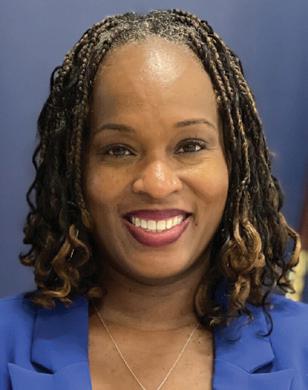
Dr. Anthony Fludd, chairman of the board, praised Cook’s leadership and thanked Bobo for her years of service.
“Our organization will continue to thrive and grow as Rev. Cook carries this critical work forward,” he said.
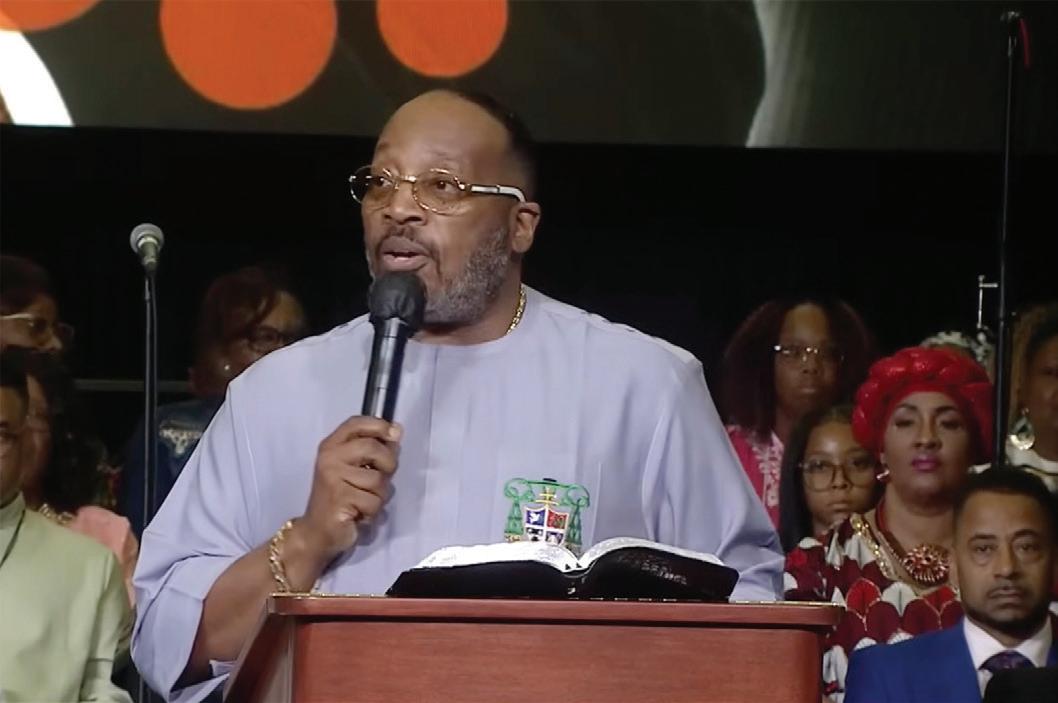
Sapp told Campbell. “We didn’t lock any doors, because you can’t lock doors in the convention center.”
PAW issued a statement on Facebook on Saturday, apologizing for the misunderstanding. The organization clarified Sapp had been asked to seek a “free-will offering” to cover the convention’s expenses. The statement also addressed the video, explaining that the “closing doors” comment was a security measure and not a tactic of coercion.
In a Wednesday statement, Sapp reiterated that his comments were intended to encourage stewardship, not manipulate donors. “To those unfamiliar with the church context or who may not regularly attend worship gatherings, this has been misinterpreted as holding people hostage as well as
offensive,” he said. “That was never my intent.”
In his radio appearance, Sapp shared the emotional toll the controversy has taken on him, revealing that he has received death threats and that his family is struggling with the fallout. “Daddy, you’re the last parent we got,” his children told him, referencing the loss of his wife to cancer in 2012.
The video clip has sparked widespread commentary, with users on social media calling out the fundraising style as manipulative. One popular post on X criticized Sapp for using “God’s name” to fundraise, while others shared similar experiences of being pressured for donations in church settings.
The viral moment also has been a source of humor. The Shade Room, a celebrity news platform, compiled reactions to the clip, which included memes, one of which humorously added the Capital One logo and tagline to an image of Sapp. Sapp took the lighthearted reactions in stride, calling some of the memes “hilarious.” At the end of his radio interview, he acknowledged the memes poking fun at the situation but stood by his intentions.
Pastors across the country have referenced the viral clip during services. At the Freedom Temple Ministry in Rock Hill, S.C., Bishop Herbert C. Crump joked, “I don’t want to go viral like my friend. We’re not going to close no door, shut no doors.” At The Dallas Project, Elder James Johnson lightheartedly addressed the moment, telling the congregation, “I’m just kidding, I’m just kidding. We don’t do that here.” The Rev. Cheryl Townsend Gilkes, a scholar of African American religious studies, said the viral video should not overshadow the broader complexities of the Pentecostal Assemblies of the World. “That clip distorts the history and complexity of the PAW,” she said. “People need to let it rest.”
Cook has led several successful legislative campaigns, including helping pass Virginia’s 2021 law abolishing the death penalty, making the state the first in the South to end capital punishment. This year, she focused on criminal justice reform, supporting legislation that bans the indiscriminate shackling of youth in court.
Before joining the organization, Cook held leadership roles at St. Paul’s Baptist Church in Richmond. She has two decades of experience in nonprofits, education and government.
At the organization’s 2025 Day for All People lobby event, Cook emphasized the power of








